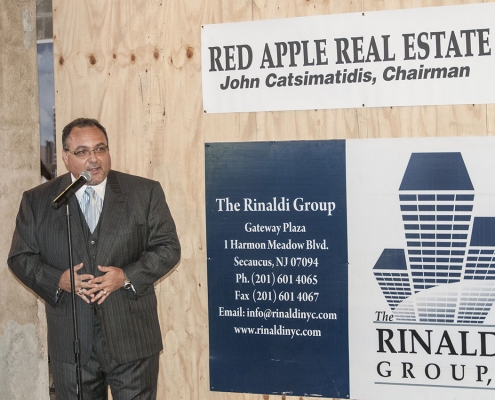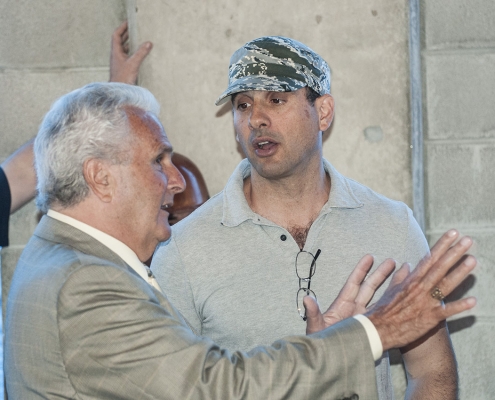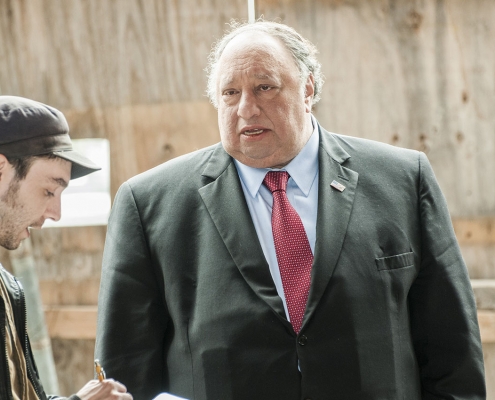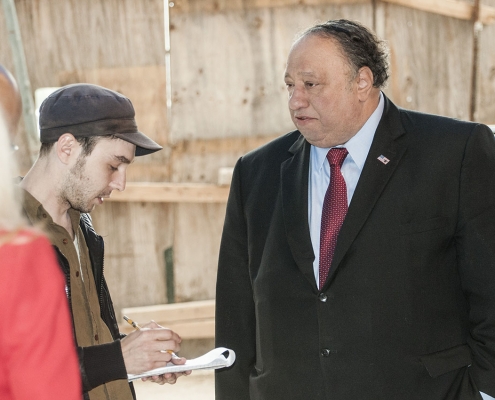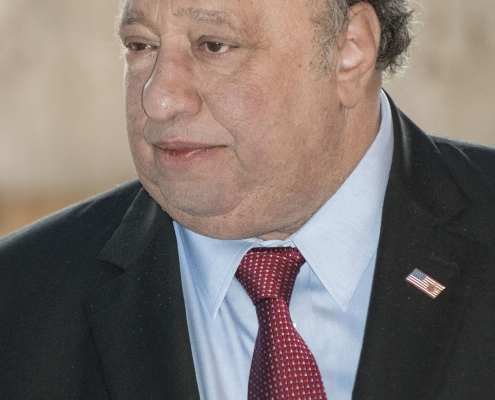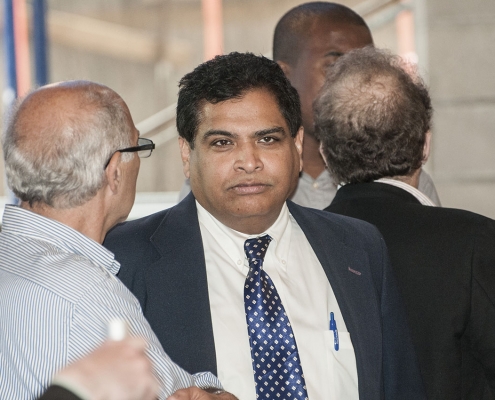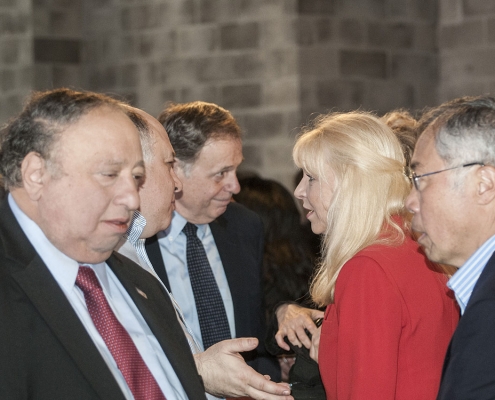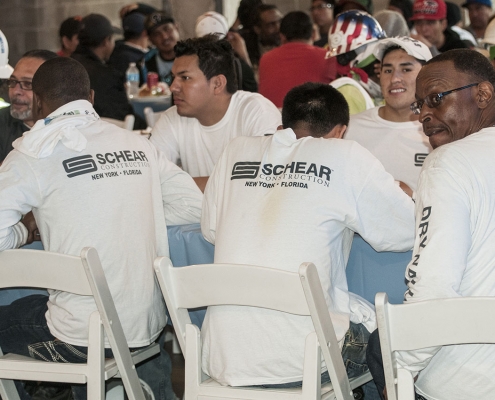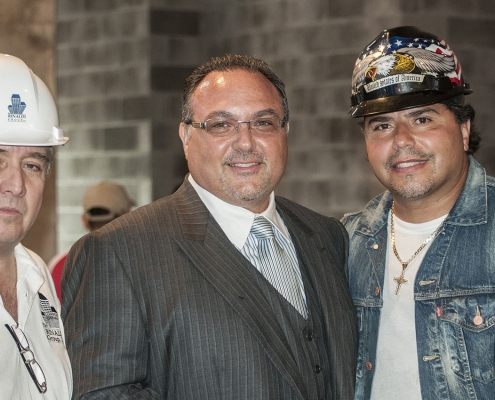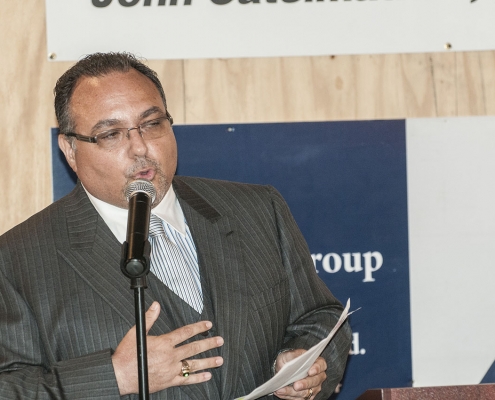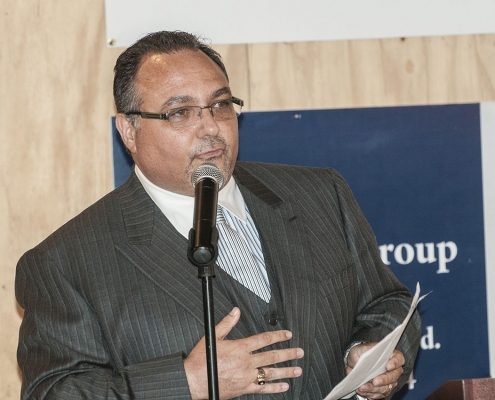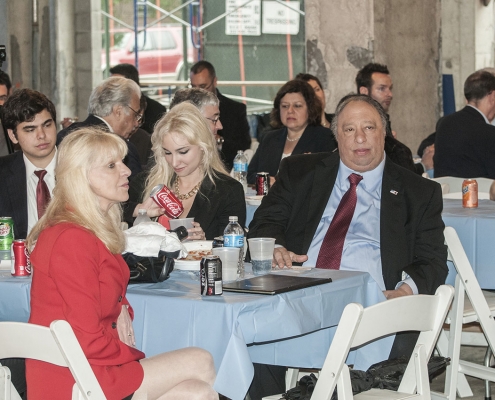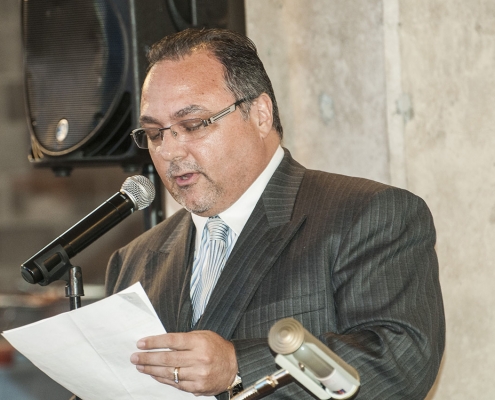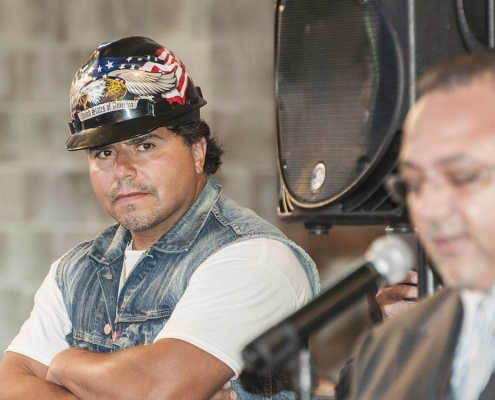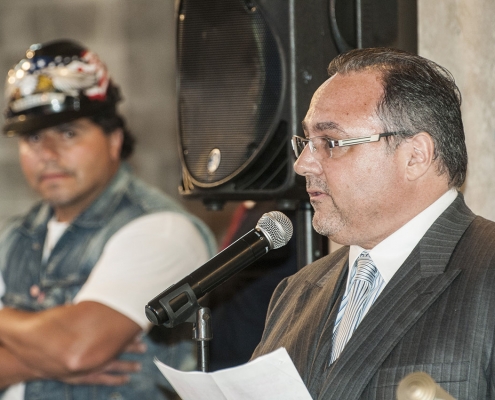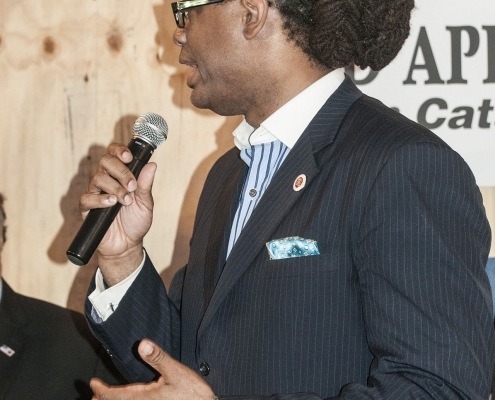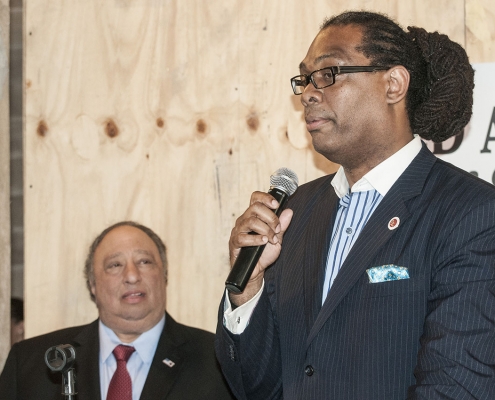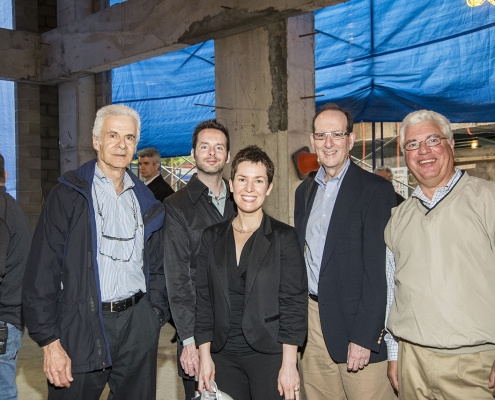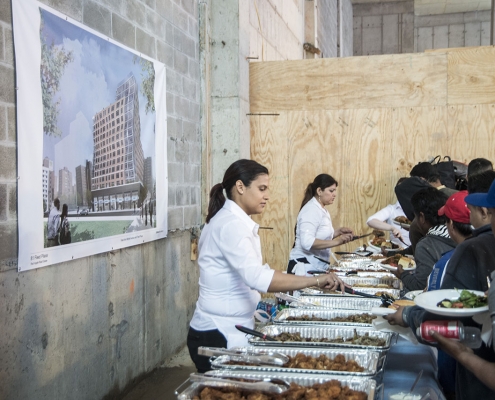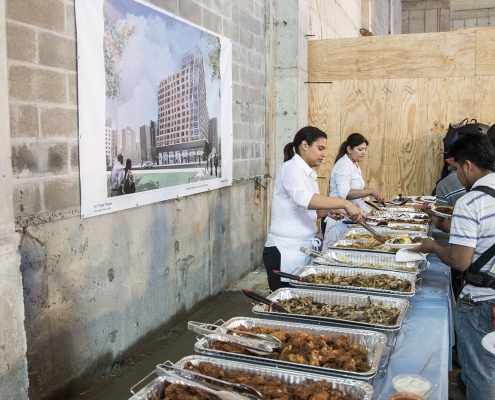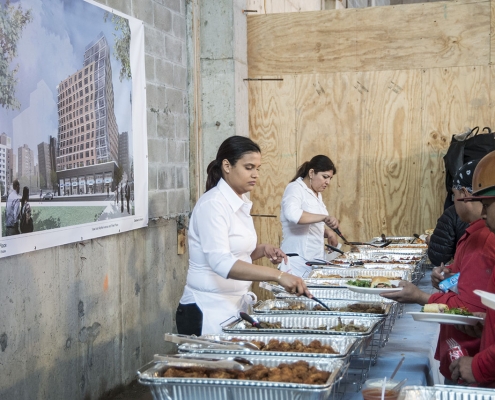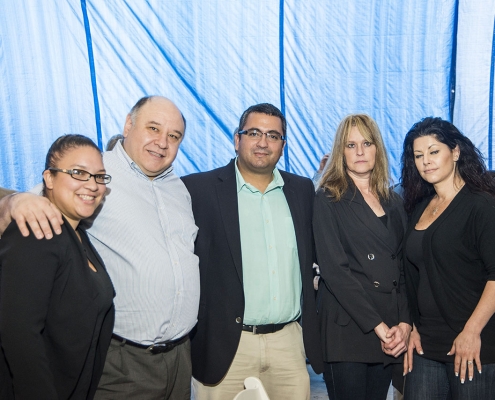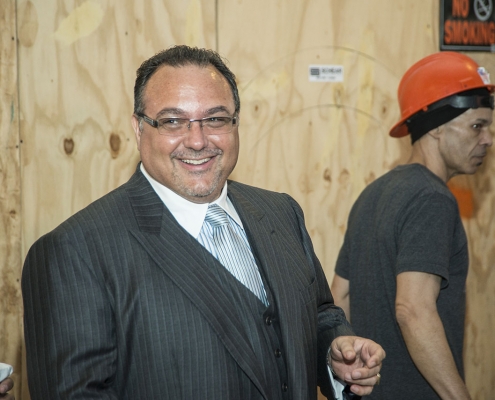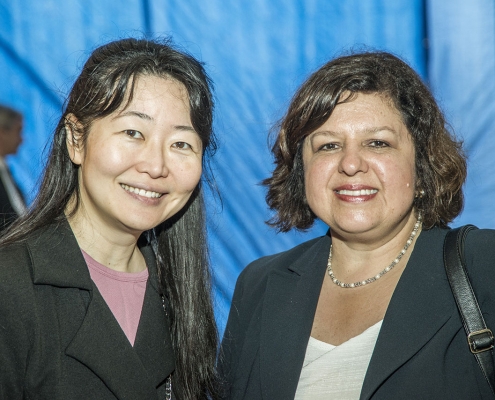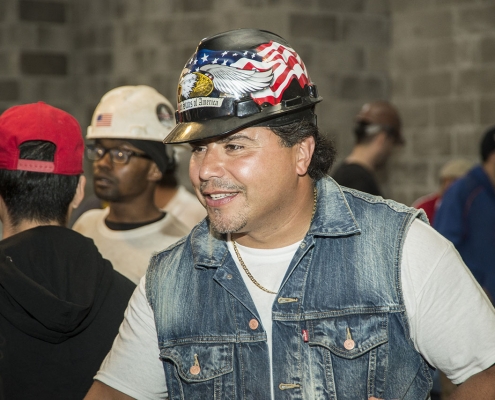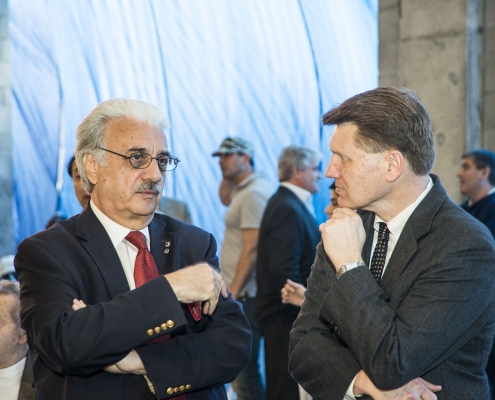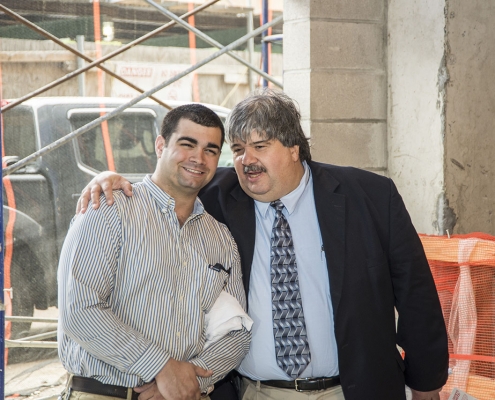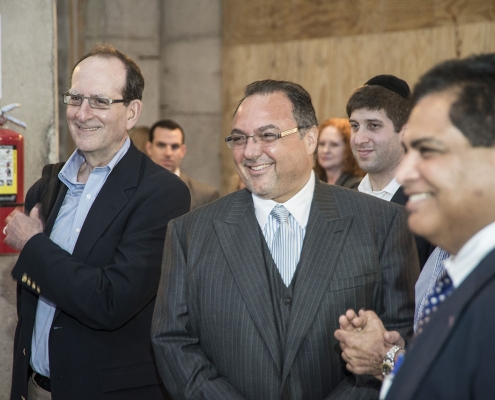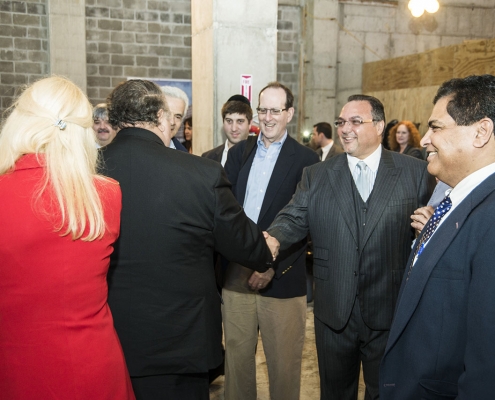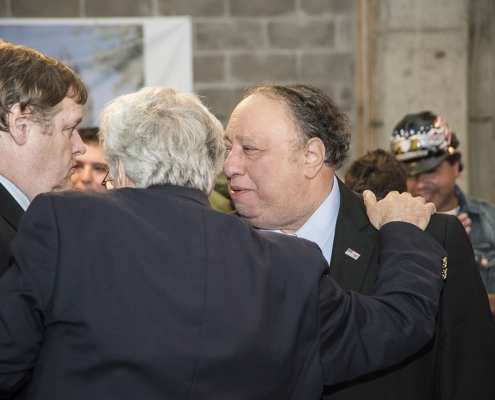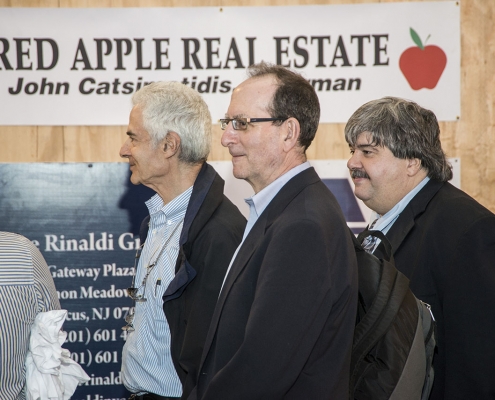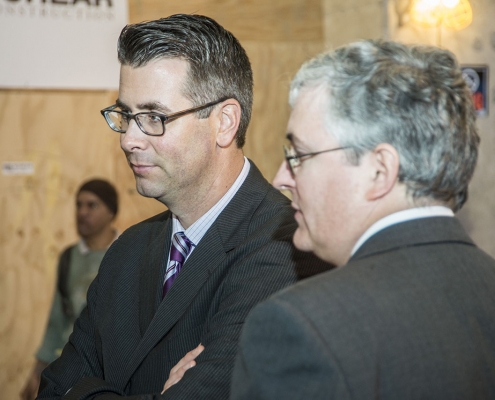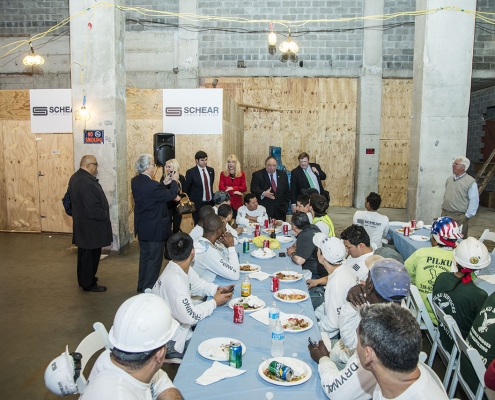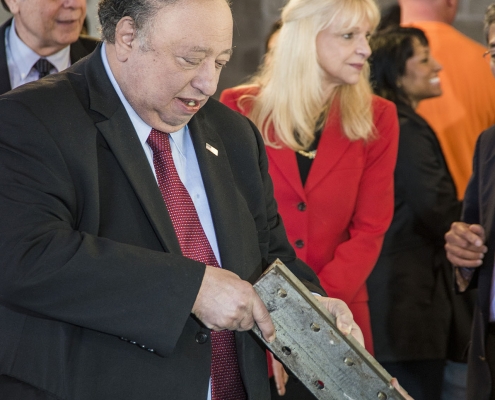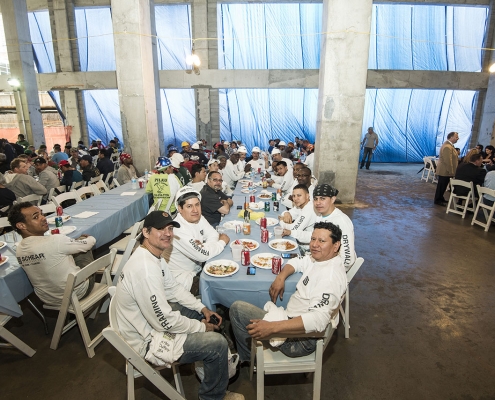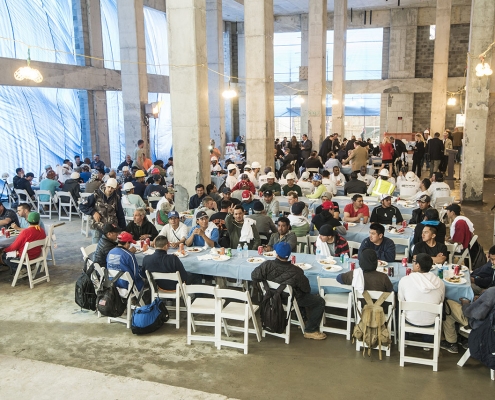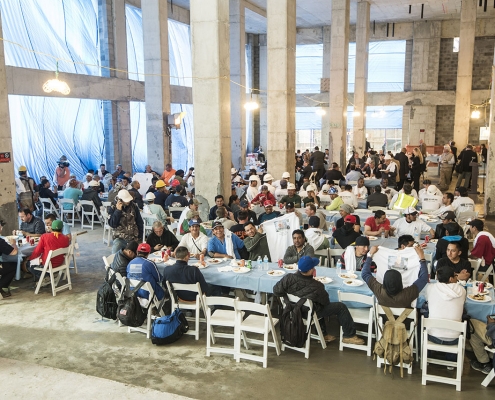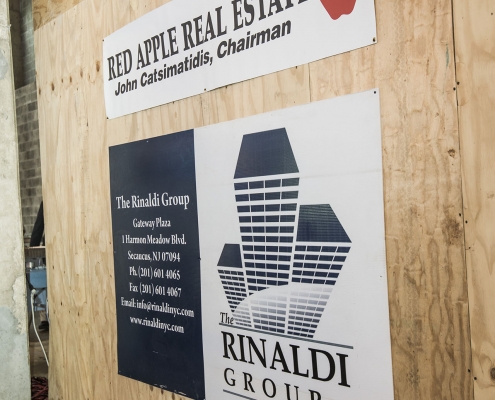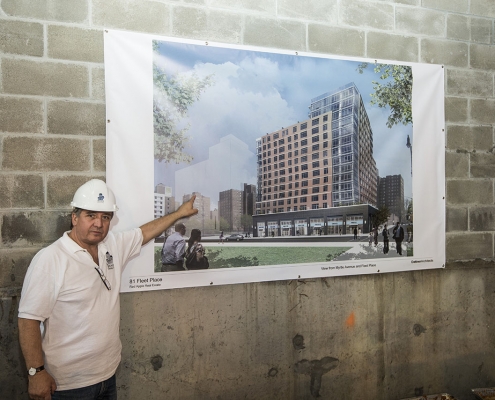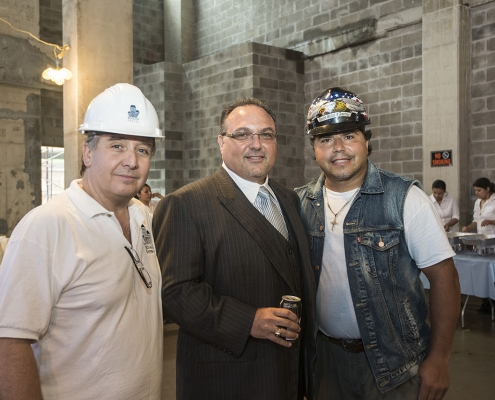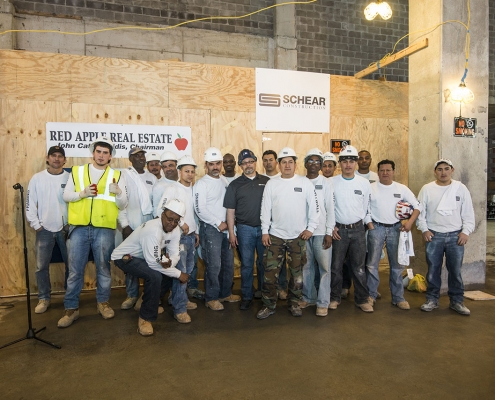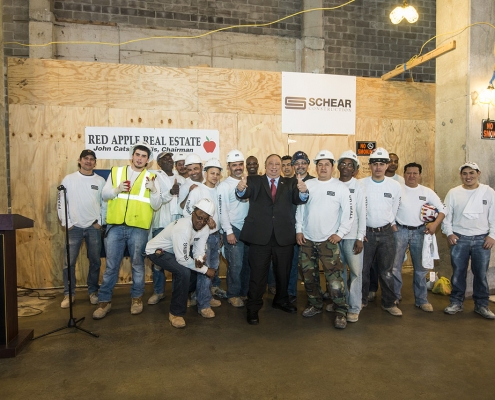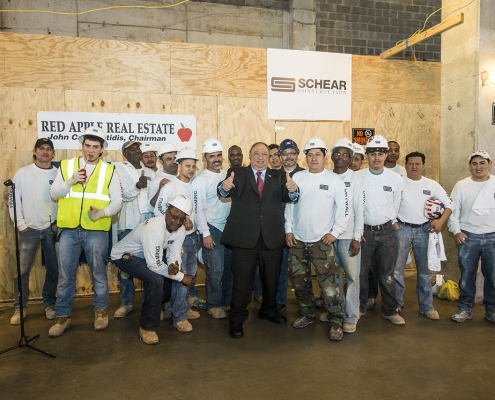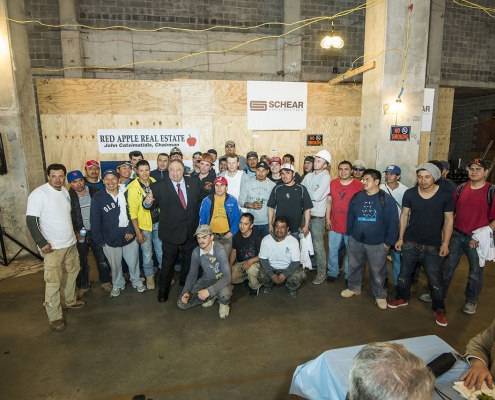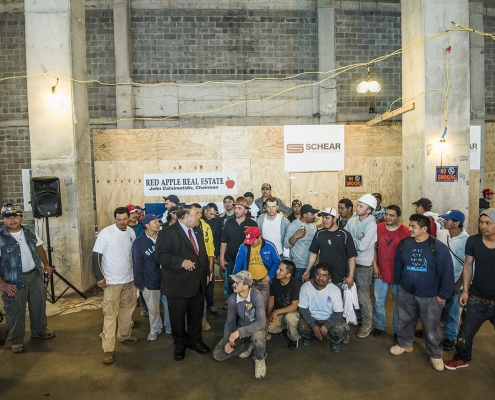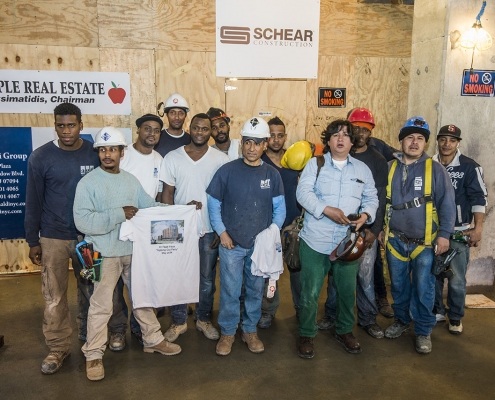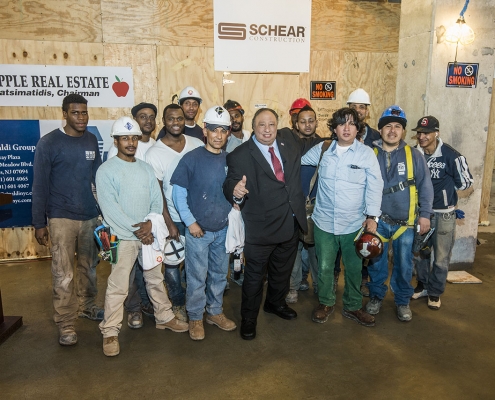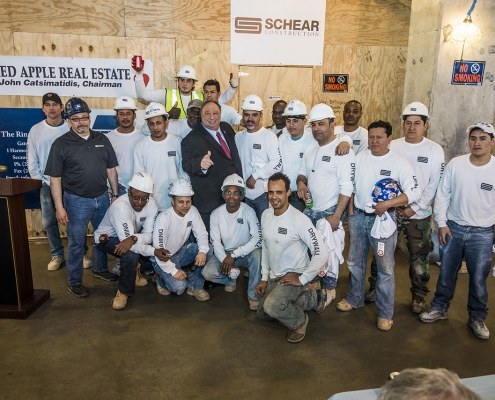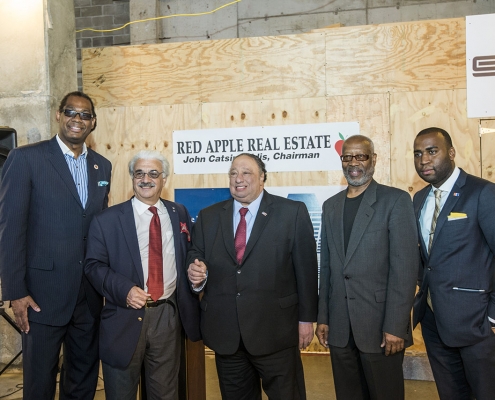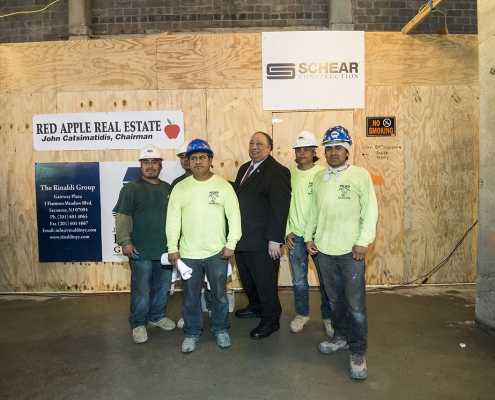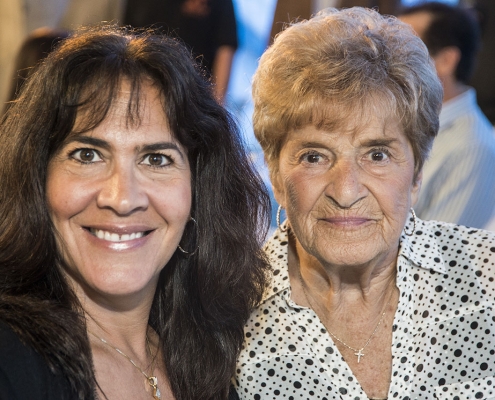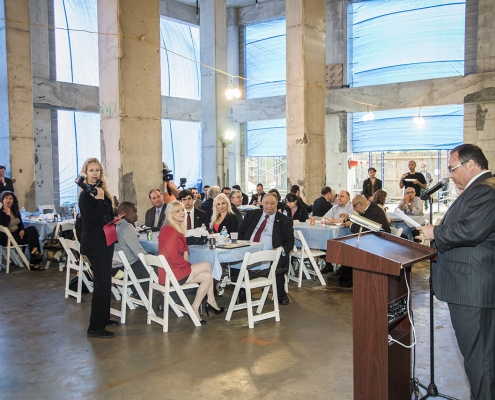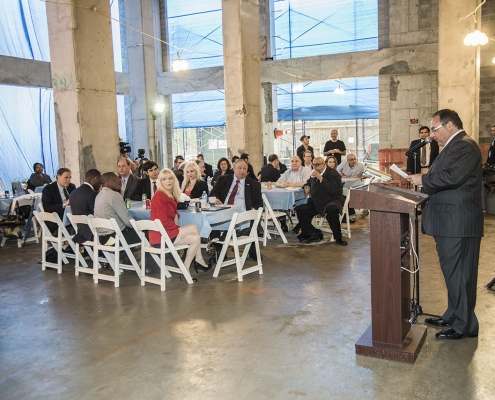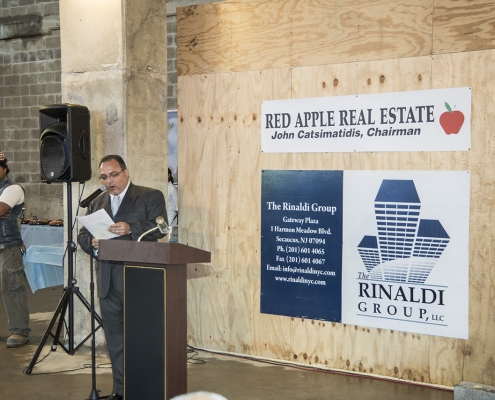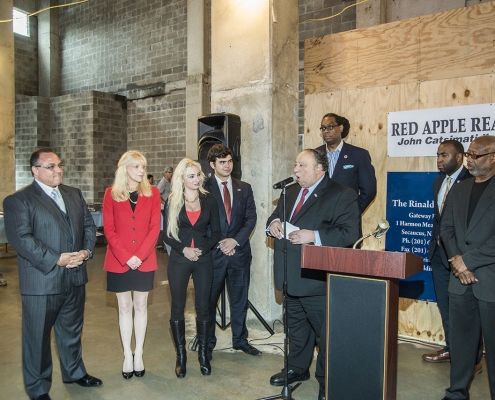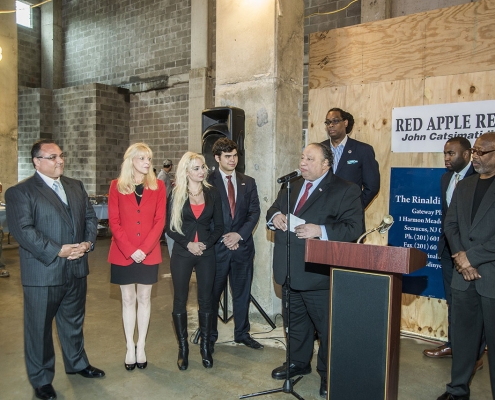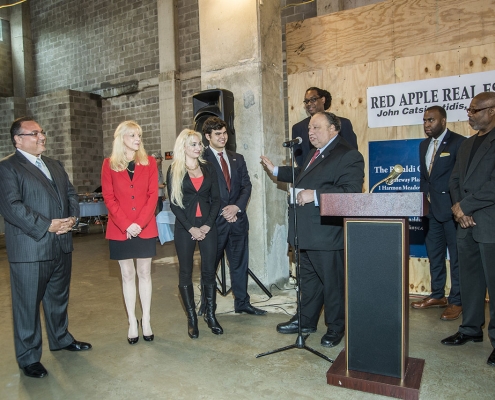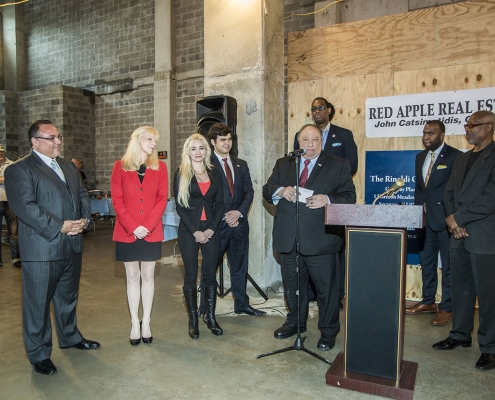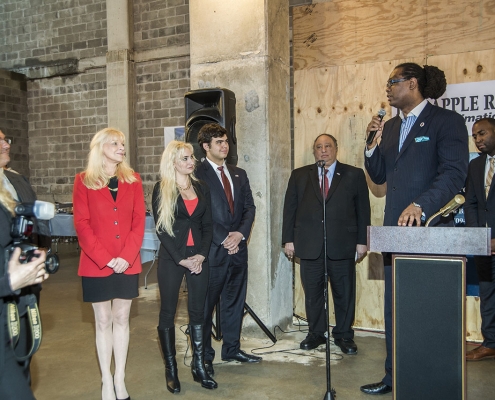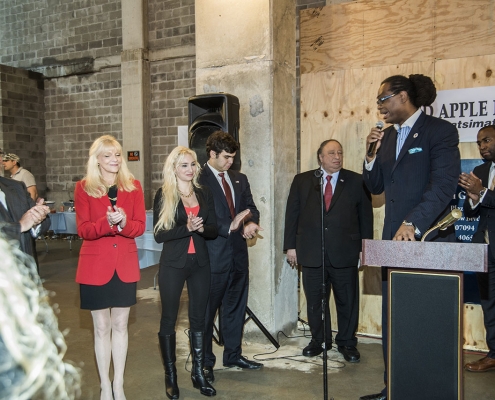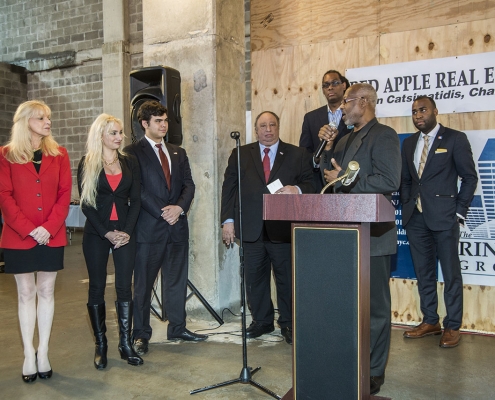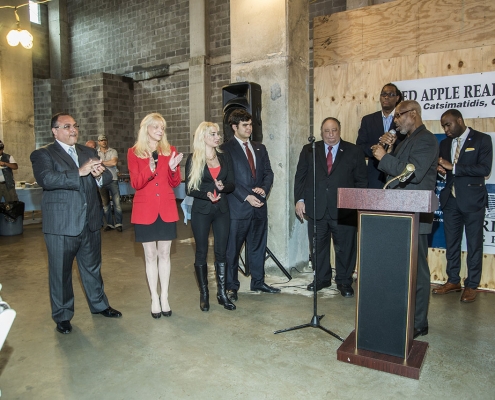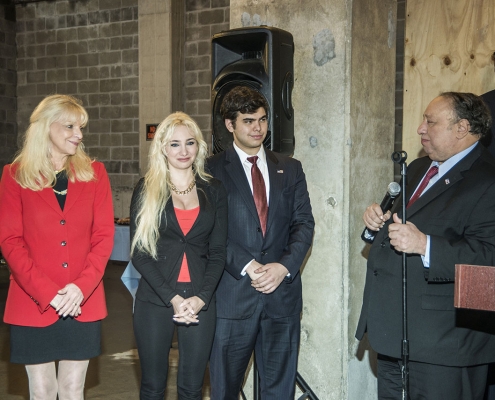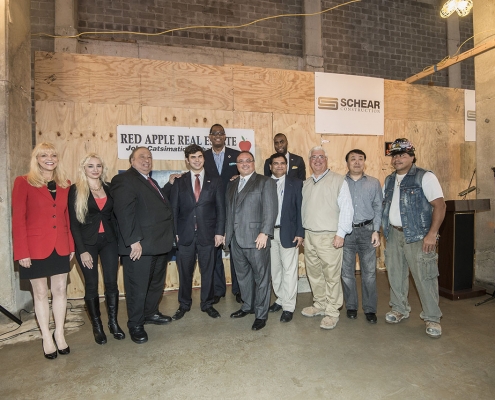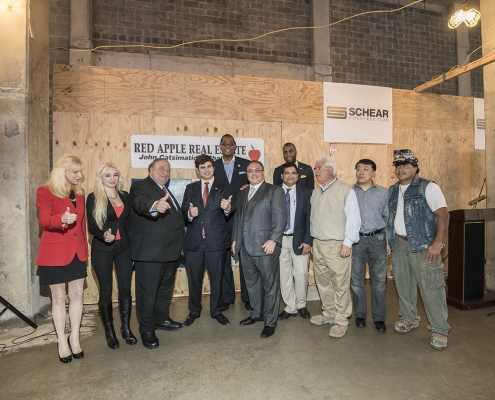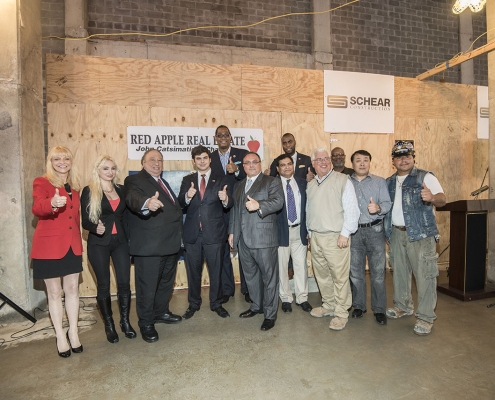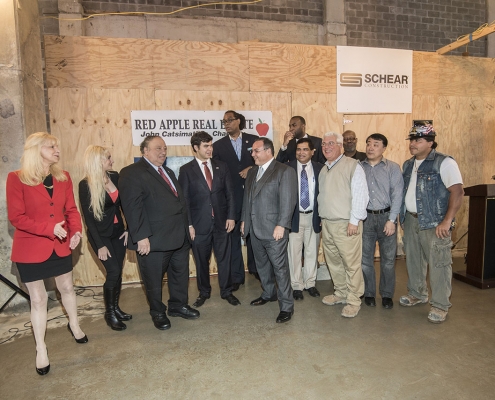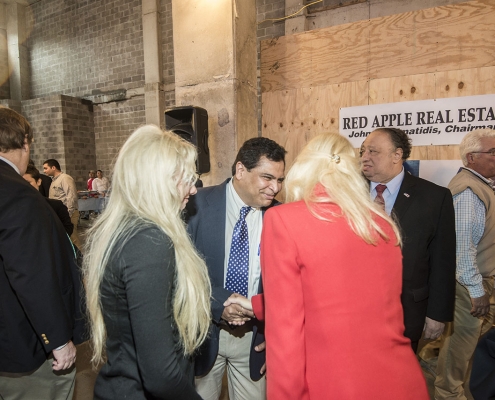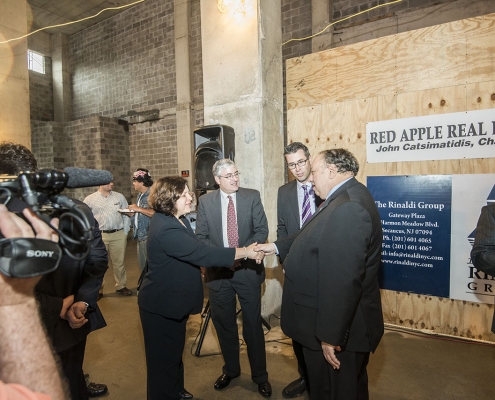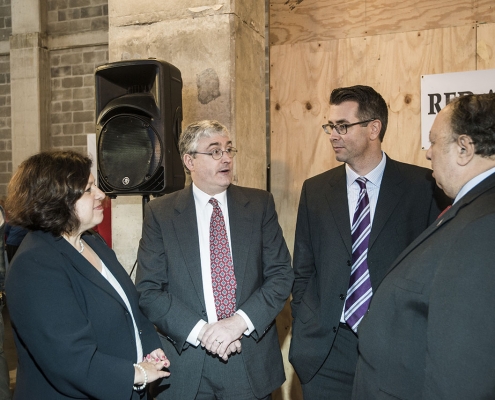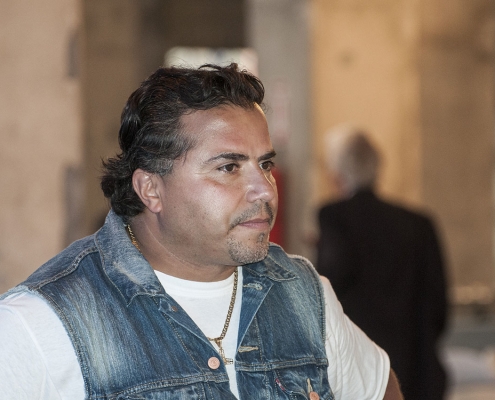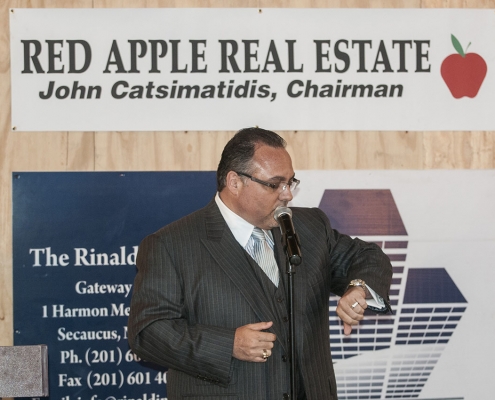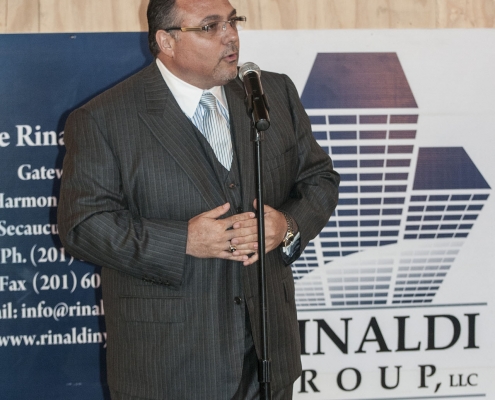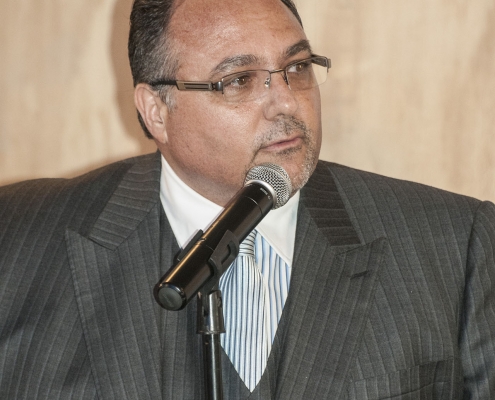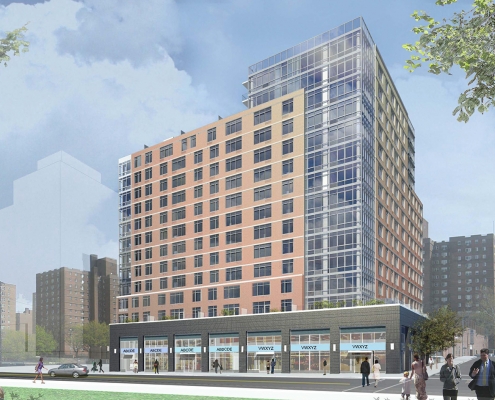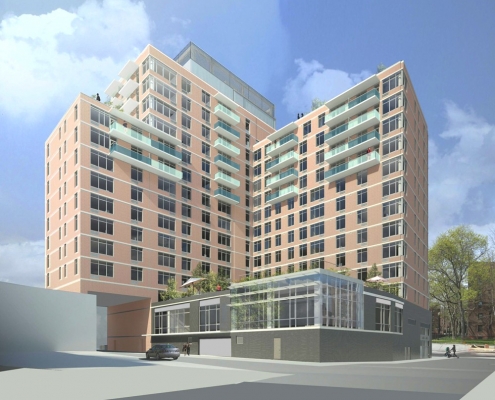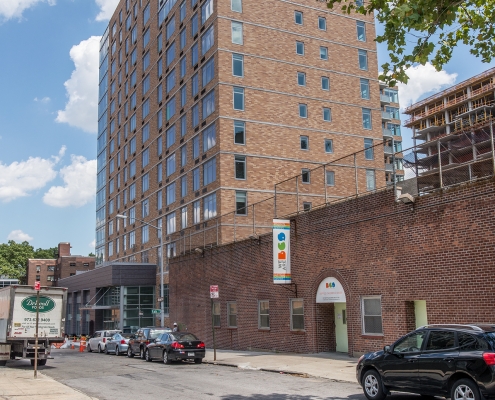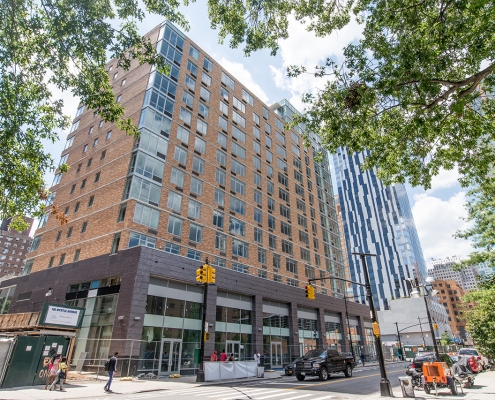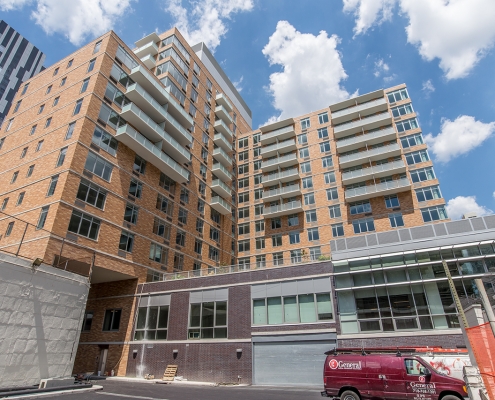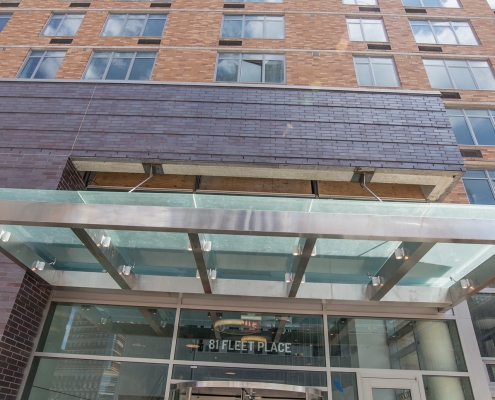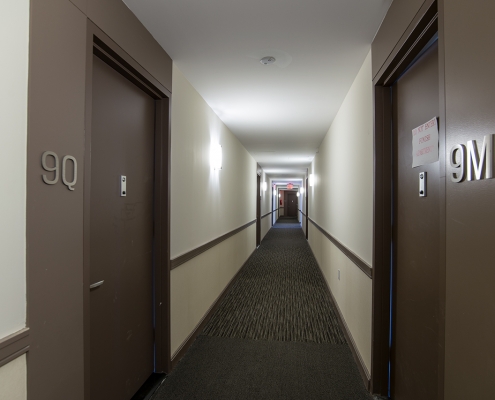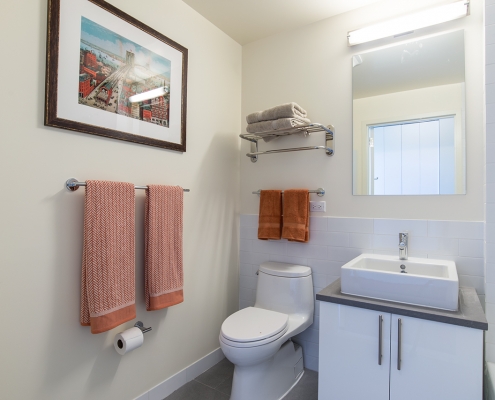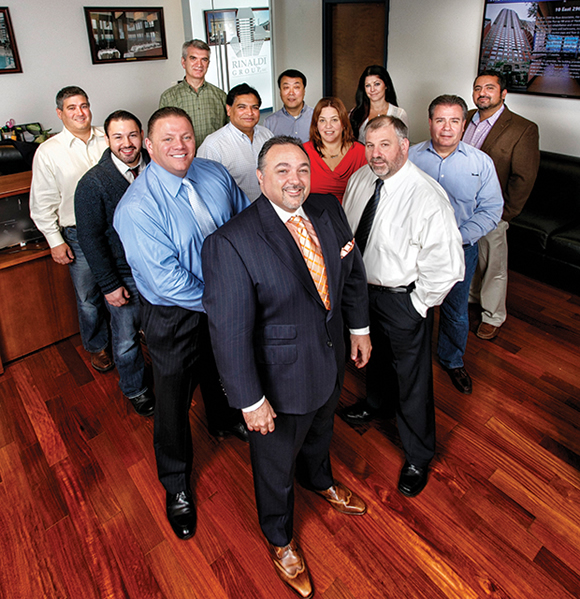Rinaldi Group Tops Out 45 East 33rd St
The Rinaldi Group Tops Out 30 Fletcher Street Project


November 2013
The post The Rinaldi Group Tops Out 30 Fletcher Street Project appeared first on The Rinaldi Group.
PRESS RELEASE: “TOPPING OUT” 81 Fleet Pl.
ANTHONY T. RINALDI, PRESIDENT OF THE RINALDI GROUP LLC IS PROUD TO ANNOUNCE THE “TOPPING OUT” OF THEIR MOST RECENT LARGE SCALE PROJECT, ON BEHALF OF JOHN CATSIMATIDIS AND RED APPLE REAL ESTATE. THE NEWEST PROJECT, LOCATED AT 81 FLEET PLACE, BROOKLYN IS 15 STORY, 260,000 SQ. FT. RESIDENTIAL AND COMMERCIAL BUILDING TO BE COMPLETED IN LATE 2014. THE PROPERTY CONTAINS 205 RENTAL APARTMENTS, 11,676 SQ.FT. OF RETAIL SPACE AND 150 PARKING SPACES. 81 FLEET PLACE IS THE SECOND OF FOUR PLANNED RED APPLE DEVELOPMENTS ON MYRTLE AVENUE. TO CELEBRATE THIS MILESTONE, PLEASE JOIN US FOR A “TOPPING OUT PARTY / PRESS EVENT”: 81 FLEET PLACE, BROOKLYN
(ON MYRTLE AVE. BETWEEN FLEET PLACE AND ASHLAND PLACE)
FRIDAY, MAY 16, 2014
12:00 NOON – 2:00 PM (LIGHT LUNCH SERVED)
1:00 PM – PRESS REMARKS “IT HAS BEEN AN HONOR AND DISTINCT PROFESSIONAL PRIVILEGE TO BUILD FOR AND WORK WITH JOHN CATSIMATIDIS AND RED APPLE REAL ESTATE ON THEIR MISSION TO REBUILD AND REVITALIZE BROOKLYN”. – ANTHONY RINALDI, PRESIDENT, THE RINALDI GROUP, LLC (TRG). THE RINALDI GROUP, LLC IS ONE OF THE CITY’S FASTEST GROWING PREEMINENT BUILDERS OF LARGE SCALE PROJECTS ACROSS NEW YORK CITY WITH PROJECTS SUCH AS THE HILTON GARDEN INN AT 45 E. 33RD STREET BETWEEN MADISON & PARK AVENUES; THE FAIRFIELD INN HOTEL BY MARRIOTT IN DOWNTOWN MANHATTAN AT 30 FLETCHER ST., AND THE RIU TIMES SQUARE AT W. 46TH ST., & EIGHTH AVE., AND IN SURROUNDING AREAS LIKE BROOKLYN WITH PROJECTS LIKE THE 220 WATER ST. IN DUMBO, THE MULTI-FAMILY RESIDENTIAL PROJECT OF THE YEAR FOR 2012 AS AWARDED BY THE BROOKLYN CHAMBER OF COMMERCE.
The post PRESS RELEASE: “TOPPING OUT” 81 Fleet Pl. appeared first on The Rinaldi Group.
81 Fleet Topping Out Party – 2014-05-16
The post 81 Fleet Topping Out Party – 2014-05-16 appeared first on The Rinaldi Group.
Firms on the fast track
Firms on the fast track. The Rinaldi Group listed third of the top 10 North Jersey companies on Inc. 5000 list of fastest-growing companies.
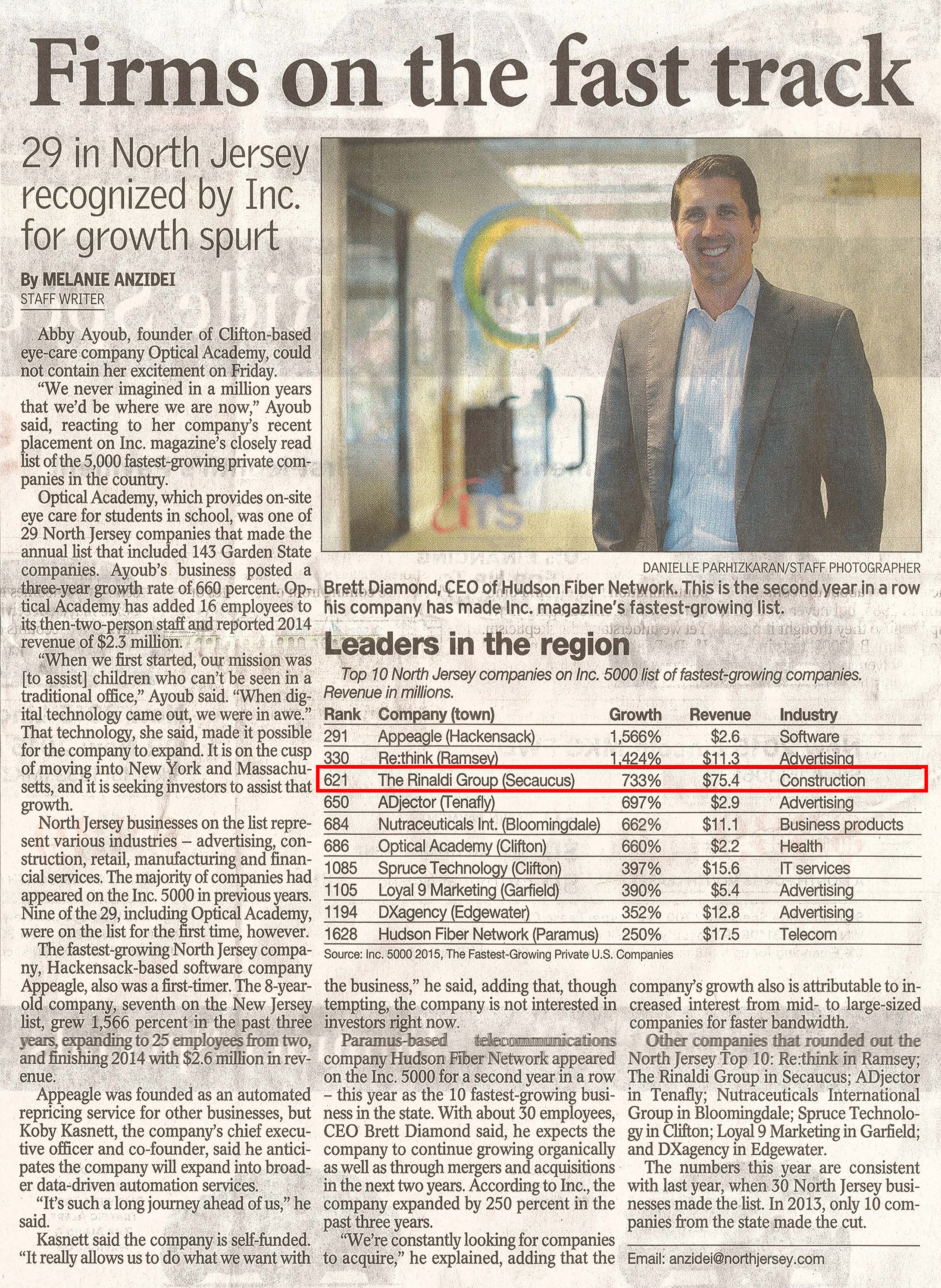
The post Firms on the fast track appeared first on The Rinaldi Group.
INDUSTRY MAG: The Maverick
From Industry Magazine:
Could a city grown accustomed to century-old methods of construction think anew? One developer bet yes, and the results are stunning
By Jessica Jones-Gorman • Photos by Amessé Photography
In 2003, after years of working for some of the city’s top construction firms, Anthony Rinaldi took a risk and opened a non-union based building group in the traditionally union-heavy New York City construction landscape.
“In the early 2000s, I started to see a change in the dynamics of the city” Rinaldi said. “I started to see a desire for developers to go non-union. And as a new company, competing for work with major construction companies with long histories, I knew I had to do something that made my company unique.”
So, Rinaldi, with a degree in Mechanical Engineering from Lehigh University, and with years of experience and technical expertise, took on a sort of David and Goliath battle with some of the city’s construction giants.
“I knew if we could combine the sophistication, technical know-how, and experience of a major union construction management firm in a non-union setting, we’d have success,” he said. “We could provide the owner with a price that was 20 to 30 percent less, which is huge for developers who are paying far too much for their dirt. There has to be relief somewhere, and where we find it is in the cost of construction. I was offering a product that separated us from the rest.”
But historically, this is the largest Union City in the country, where a great many jobs and wages have been union controlled since the 1800s. However, in recent years, things started to change, Rinaldi said, and he felt it was time to modify how some of the city’s major construction projects were managed.
“I think there was a time in this country when labor was abused and unions had a function. They were necessary to protect the worker, but the pendulum has swung and unions went from necessary to almost abusive,” Rinaldi explained.
There were a number of jurisdictional disputes, Rinaldi claimed, which often stopped work and put both contractor and developer at risk financially.
“It was a mentality in the construction world that just got worse and worse,” Rinaldi said. “I’m trying to produce the best work for my client, but am unable to do so because of so much conflict and battle for control. I simply decided that I would not let anyone else control my business but me.”
The transition wasn’t exactly simple for Rinaldi. He was raised union—his father was a Hoboken police captain and his father-in-law a laborer with Local 79, both men of union backgrounds. And after earning his degree from Lehigh, Rinaldi worked for both George A. Fuller and HRH Construction, two of the city’s major union-based construction management firms.
And the developers he was courting had reservations, too. But when a number of fully licensed and insured non-union crane companies started cropping up, Rinaldi says many union guys started to convert.
He opened his Secaucus-based company, The Rinaldi Group, and secured a first big break in 2005 when a former colleague reached out for assistance on a $500 million project in White Plains.
“We worked hand in hand to build the Ritz Carlton Hotel and the two adjacent 47-story condominium towers,” Rinaldi recalled.
That led to another major project funded by John Catsimatidis’ Red Apple Group in 2008.
“Catsimatidis owns a lot of real estate and a variety of businesses, but this was his first development project,” Rinaldi said.
It was a massive undertaking, consisting of two city blocks in downtown Brooklyn: one area reserved for a 40-story high-end condominium tower, the other for a mid-rise affordable housing project. That year the financial industry collapsed, however, so Catsimatidis reorganized the project, breaking it down into four smaller phases.
The mid-rise buildings were built smack in the middle of a then-trending neighborhood—in the shadow of the Manhattan Bridge, not far from the Barclays Center and all of its booming commerce.
“Catsimatidis gave us a real big shot,” Rinaldi said.
Other Brooklyn jobs followed. One on Nassau Street (also at the foot of the Manhattan Bridge), another on Water Street (the latter named multifamily residential project of the year by the Brooklyn Chamber of Commerce).
“That project was a 200,000-squarefoot conversion of a landmark shoe factory,” Rinaldi said. “We turned it into 135 luxury high-end loft rental units and the work had to be coordinated with the Landmarks Preservation Commission and other local and state agencies. It really was a wonderful transformation.” It also served as proof that Rinaldi had carved a niche in this city for his brand of building.
“There are only a handful of companies like ours in this city, but I think our willingness to go the distance for our clients really separates us from the competition,” he said. “We do a number of things relative to cost that our competition does not do. Plus we provide a level of trust that has given our name a very good reputation in this industry.”
For Rinaldi and his staff, that translates into consistent growth. The group is currently working on a hotel, theater, and mixed-use space in Harlem which will break ground in 2015, while an ultra-high-end condominium conversion in Manhattan is slated for a 2017 completion.
The Rinaldi Group currently maintains a book of business in excess of $400 million, and was recently recognized by Inc. magazine as one of the fastest growing companies in America.
“It’s been an action-packed ten years,” Rinaldi said. “It took a lot of hard work and dedication, and we’ve certainly paid our dues to be here, but I feel very blessed and thankful to be in this position.”
Read more from Industry Magazine…
The post INDUSTRY MAG: The Maverick appeared first on The Rinaldi Group.
HOME RUN – Anthony Rinaldi Project Part of a Multi-Phase Myrtle Avenue Master Plan
From Industry Magazine:
Once one of the hottest high school baseball prospects in the nation, Anthony Rinaldi chose real estate instead, and his latest project in fort Greene is just one part of a multi-phase Myrtle Avenue master plan.
by Alice Forstead
 Every life has its arrangement of defining moments… its “Which door should I choose?” conundrums, but for students of city real estate generally, and Brooklyn’s market specifically, the one faced by Anthony Rinaldi in the mid ’80s was more than a little bit unique. Born in Elizabeth, New Jersey and the son of a 33-year veteran of the Hoboken Police Department, Rinaldi was educated in the Secaucus Public Schools system, where he was quickly spotted as a more than capable athlete. In fact one of the most promising catchers in all of high school baseball, he was given the opportunity to tryout with the Cleveland Indians, Los Angeles Dodgers, and California Angels, but instead chose higher education and an engineering degree over a career in professional sports.
Every life has its arrangement of defining moments… its “Which door should I choose?” conundrums, but for students of city real estate generally, and Brooklyn’s market specifically, the one faced by Anthony Rinaldi in the mid ’80s was more than a little bit unique. Born in Elizabeth, New Jersey and the son of a 33-year veteran of the Hoboken Police Department, Rinaldi was educated in the Secaucus Public Schools system, where he was quickly spotted as a more than capable athlete. In fact one of the most promising catchers in all of high school baseball, he was given the opportunity to tryout with the Cleveland Indians, Los Angeles Dodgers, and California Angels, but instead chose higher education and an engineering degree over a career in professional sports.
After more than a decade in and around city realty businesses, Rinaldi hung out his own shingle in 2003 under the name Anthony T. Rinaldi, LLC., d.b.a. The Rinaldi Group. The general contracting and construction management firm has since been responsible for the development and construction of high-rise condominium and rental towers and hotels in Arizona, New Jersey, Florida, New York City, and Westchester, and has been witness to and participant in one of the most stunning real estate valuation increases in the nation’s history. With projects like the boutique Hilton Garden Inn on E. 33rd Street, 570 Lexington Avenue, and the Garden State Plaza Mall under its belt, along with Brooklyn projects 220 Water Street and 218 Myrtle Avenue (the former reported on in the feature “The Shoe Fits” in the July/August 2013 issue) Rinaldi has focused considerable attention on the borough’s widely expanding fortunes, most recently in the form of a multiple phase Myrtle Avenue development in Fort Greene, capped by this recently-completed 15-story tower, referred to as both 81 Fleet Place and The Giovanni.
In partnership with Red Apple Real Estate, the rental tower, designed by Dattner Architects, consists of two stories of below-grade parking, two more floors of retail space, and 13 stories of luxury residential units. Encompassing some 260,000 square feet, the project was completed in late 2014, features 205 apartments, and is currently valued at just over $57 million. Siting, as always, was a key consideration—a short walk to the Barclays Center and BAM, and just around the corner from Fulton Mall.
“It has been an honor and professional privilege to build for and work with [real estate developer and 2013 Republican mayoral candidate] John Catsimatidis and Red Apple Real Estate on their mission to rebuild and revitalize Brooklyn,” Rinaldi offered at the ribbon-cutting, and it was clear from the time the first rental contracts were signed that the project included a tier of amenities new to a once-distressed eastern edge of Downtown. Its units run from $2,500 per month for a studio to $4,400 for a 907-square-foot two-bedroom (though the priciest available unit at time of press is a $4,975 919-square-foot one-bedroom).
For this healthy price of admission, renters have access to a 24-hour concierge, an indoor parking garage, secured bike storage, a garden manicured roof deck, residence lounge, media room, game room, and fitness center that features a private gym with Cyber cardio equipment and a yoga/aerobics studio. Individual unit amenities vary slightly according to size and layout, but all feature oversized windows, Caesar Stone kitchen countertops and glass-tiled backsplashes, stainless steel GE Profile and Frigidaire appliances, Casals Grande Titan Martian flooring in kitchen and bath, a stacked Bosch washer and dryer, climate control, and maple strip wood flooring throughout. Private terraces and outdoor spaces are available, too, depending upon unit number.
Read more from Industry Magazine…
The post HOME RUN – Anthony Rinaldi Project Part of a Multi-Phase Myrtle Avenue Master Plan appeared first on The Rinaldi Group.
Rinaldi Group Cited as 129th Largest Privately Held Company in NYC Area
The Rinaldi Group (TRG), one of the fastest growing companies in the New York Metropolitan area has now been cited by Crain’s as the 129th largest privately held business in New York. TRG is a full service licensed general contractor and construction management firm that, as a result of its efficiency, quality, professionalism and safety, has grown into a financially strong business with unlimited capabilities in an industry today that is more competitive than it has even been before. http://rinaldinyc.com/about-us/
TRG employs a diverse work force of thousands of well trained and safety conscious professionals that has grown substantially in a little over 12 years. Given this fast track to success, it is no surprise that TRG has joined the ranks of billionaire John Catsimatidis and The Red Apple Group…and others like Hearst…Trump…Bloomberg…Goya Foods…Modell’s Sporting Goods…and Sam Ash Music…and construction companies like Hunter Roberts, Tully, Structuretone, Barr & Barr, Plaza, J. Fletcher Creamer, Langan Engineering, Ibex, Schimenti and Cava-recognized for its success and unparalleled growth.
TRG’s technical and design diversity reaches all branches construction, from design-build and core-&-shell to interior fit-out, renovation and rehabilitation, the firm’s abilities are endless. Whether a project is a residential high-rise condominium or a mid-rise hotel; whether it is a commercial office building or a health-care facility; whether it is a school, college or athletic facility or a theater, restaurant or library; and whether it is a public municipal building and court-house or it is a financial data hub, entertainment complex or retail center-the list of what the TRG can do, and do in the most cost effective way, is literally endless.
Success, however, doesn’t only bring accolades-it creates jealousy and resentment. As one of the largest and fastest growing merit-based contractors, TRG has a target on its back because regressive forces are looking to find any way they can to diminish all that the firm has accomplished in little over a decade.
We are here to let everyone know that we will not take the attacks lying down-because to threaten TRG is to threaten not only a successful business, but also the livelihoods of thousands of mostly minority workers who have been given tremendous opportunity to become part of the American Dream because of TRG’s rapid growth. We have no need to apologize for our success and we will do all within our power to preserve the competition in construction that is vital to economic growth and prosperity.
America is known as a land of opportunity. We at TRG are grateful that we have been fortunate enough to compete successfully and help to create hundreds of diverse facilities that the public uses and enjoys today.
It is this vibrant and unique environment that is under siege by forces that want to turn back the clock to a time when their own protection racket stymied competition and thwarted the growth the provides the jobs that drives this great economy. With all of our own effort, and the support of scores of other like minded contractors, we are prepared to do battle to preserve and promote competition in one of the foremost job-creating industries in New York and New Jersey.
The post Rinaldi Group Cited as 129th Largest Privately Held Company in NYC Area appeared first on The Rinaldi Group.
Business in Focus: The Rinaldi Group – Stronger than Ever
From Business in Focus:
The great recession of 2008 had a significant and negative impact on general contractors and the construction industry overall. Many firms had to downsize or lay off employees, and some even went under. The Rinaldi Group also suffered – yet it but did not let any of its people go.
~
Instead, staff took pay cuts, and the company skimped and scraped its way through. As the skies cleared, the group was ready and a business plan was in place to start anew. It has been rapidly growing since. Being non-union has its challenges, but as President and CEO Anthony Rinaldi explains, it’s now a better state to be in New York City.
The Rinaldi Group started in 2003. Up until 2001, Anthony worked within the union world, and New York is the largest union city in the country. Between 2001 and 2003, he noticed a market change in New York; prior to this, clients and owners did not dare to venture into non-union territory. The winds of change were starting, and non-union work was becoming more appealing. Still, it was limited by materials and equipment – such as cranes or personnel hoists –being controlled by union companies.
“That prevented New York from going non-union on the high-rise side, above and beyond twenty stories. Between 2001 and 2003, the industry changed. A number of union crane and hoist operators went from union to non-union, and with that came the ability for developers to go non-union.”
Anthony knew that he would be bidding against some storied construction management firms that were monsters in the industry. He also recognized that to have a niche would be beneficial in this competitive arena, granting the company opportunities. The real difference is that the company is not part of a union.
Anthony felt that the company had the technical abilities. He is a mechanical engineer, a graduate of Lehigh University in Bethlehem, Pennsylvania, which is one of the top engineering schools in the country. He brought a number of his peers with him to start the Rinaldi Group, all of whom are engineers and architects. This, and the team’s prior experience with union work, brought a level of sophistication and technical know-how that could compete in the marketplace. So the Rinaldi Group could set itself apart as a non-union high-rise construction management firm which was a new and developing market.
“It started slowly in 2005, but we landed a project working hand in hand with one of the oldest high rise construction companies in America: George A. Fuller. The project was in White Plains, New York. Known as the Ritz Carlton Hotel at Renaissance Square: a ten story hotel as a podium with two 47-story high-rise condominium towers – a $500 million job.”
In 2007 to 2008, it worked on a project for the John Catsimatidis’ real estate company Red Apple Group. John, a self-made billionaire and entrepreneur, owned a lot of real estate in New York with different business interests. Working with Rinaldi was his first property development project. The project was in downtown Brooklyn at the foot of the Manhattan Bridge, near Barclays Stadium. It was a $25 million, nine-story market-rate rental building.
Things kept going from there, and Rinaldi garnered a portfolio of business over $400 million with prestigious high-end hotel and residential projects in New York – all non-union.
Just as the Rinaldi Group was hitting its stride, the world economy nearly came to a halt in 2008. “I knew that when we came out of this recession, those of us still standing were going to become rock stars, and it would clear out the field, which it did,” says Anthony.
Work was hard to find during those lean days and banks were not lending out much money to developers. Management, including Anthony, took two pay cuts during this period. “We have been together for upwards of eighteen years, so it’s a family atmosphere. I did not lay off one person.”
The Rinaldi Group went from having $200 million of work to the bulk of that drying up. Only two projects were going, valued at $40 million. The company had to try to make do with scant resources. It cut back and learned to live with less; pay cuts were performed along with trimming in areas like health care. However, as Anthony predicted, work started picked up again in 2011 to 2012, and the company was in a good position to capture it due to the trust that developers had in it and its abilities. Through 2013, growth was rapid again due to the tremendous amount of work.
“I had a business model waiting for this, and sure enough we were ready. I asked our Director of Marketing and Business Development Lori Hinz to submit our financial statements based on this three-year period to INC Magazine to see if we qualified for their INC 5,000 fastest growing companies.”The application was submitted, and financial statements were looked over by its own certified accountants. The result was a placing of 636 out of 5,000 on the list.
Francis Santos, Rinaldi’s comptroller, then submitted statements to NJ Biz, a magazine with similar rankings to the INC 5000, but dealing with the top fifty companies in New Jersey. Rinaldi came out as number five.
Anthony touts the family feel that his company possesses. Everyone in the group has either worked for him before or come in as recommendations through valued peers in the industry, such as his architects and engineers. A head-hunters or recruiters are not used; ads are not placed in the classifieds. The same rule applies to subcontractors and vendors.
Rinaldi does not have a human resources department. Anthony goes on to explain that he is the human resources department. He interviews every hire from the receptionist to the most senior engineer. “For you to come to the table with me, you have to go through architects, engineers or consultants that we know, or through people that work for me. I don’t believe in hiring people that I don’t know. I don’t care what your business is; it’s all about relationships. You have to be cut from the same cloth that I am cut from.”
The people hired not only have to have the same ideals as Anthony, but they have the same business sense and philosophy, to go along with family, moral and ethical standards. “I want to make sure that we align. My interviews tend to be long because we get into everything from professionalism to their home life. This has contributed to our success because when you have a company of 1,000 people, built in the same way, who think in the same way and live in the same way, it makes life a lot easier.”
Currently, the company is working on a high profile project: the RIU Hotel in Times Square, a thirty story hotel for RIU Hotel & Resorts. The project is costing $105 million and is one of the few projects over $10 million being done in the city as non-union.
The Rinaldi Group won the 2012 Multi-family Residential Project of the Year for a building at 220 Water Street in Brooklyn. For the project, The Rinaldi Group worked with renowned developer Ginsburg Development Companies (GDC) another well-established family-run development company with a lot of talent.
The tricky and difficult endeavour was being estimated to cost around $30 million but had a budget of only $25 million. “Their head of construction grabbed me and said that they couldn’t find a CM (construction management company) that could do it for $25 million. I brought a lot of my key subcontractors in, and we went through it. We sharpened our pencils and got the budget down to $25,600,000. That made the project happen.”
A second aspect that made the project next to impossible was that it involved the conversion of a landmark building – a former shoe factory in Brooklyn. This resulted in a number of hurdles, including a lot of paperwork. There was a historic building tax credit in the millions of dollars that was available for the project. This tax credit, however, was attached to a schedule that required the project to be turned over by December 31, 2011.
“It was a nineteen-to-twenty month project that we started in July, 2010 – which was no fault of our own, but it meant that we had to get it done in seventeen months. Without that, we could not get a TCO (Temporary Certificate of Occupancy) on the property from the owner so that the tenants could start moving in by December 31st, 2011.” Without the TCO, the tax credit would have been lost. In the end, it not only came in under budget, but on time. The TCO was given on December 27, 2011.
The result of this great work is that, without having to bid against anyone, the Rinaldi Group is presently doing a project for GDC in Long Island City. It was hired to start the pre-construction services and is now in the design phase.
“We won a client for life. That is not to say that we don’t always have to perform, but based on what we are all about and how successful the project was by getting it done on time and under budget.”
Read more from Business in Focus…
The post Business in Focus: The Rinaldi Group – Stronger than Ever appeared first on The Rinaldi Group.
The Mann Report: Mr. Residential – The Rinaldi Group
From The Mann Report:
Rinaldi Group’s Aloft Climb Upon The Ladder Of Success
Founded in December 2003, The Rinaldi Group, LLC began with the dream of offering the owner and developer in the New York and New Jersey metropolitan area a new brand unique to the marketplace and namely, a non-union construction management and general contracting firm with all the capabilities, talent, depth and financial strength of the major union firms only at a 20% to 30% overall savings from their hard costs of construction. Ten years later, that is exactly what they are doing with sales in excess of $400 million, A-rated bonding, SDI or Subcontractor Default Insurance commonly known in the business as “Subguard” and a string of marquee projects, including their award-winning residential Landmark conversion of 220 Water Street in the DUMBO section of Brooklyn, named 2012 Multi-Family Residential Project of the Year by the Brooklyn Chamber of Commerce.
“The New York City marketplace is only in recent years catching up to what we have been doing since 1996,” Anthony Rinaldi claimed as Founder, CEO and President of the firm. “My partner Jordan DeCandia and I have been doing significant non-union projects almost 20 years now, going back to when we were both principals in other firms,” Mr. Rinaldi advised. Jordan DeCandia, The Rinaldi Group’s Vice-President, was one of the first to embark on the transition from union to non-union on high-rise residential and hotel projects in Manhattan. “We often get a kick out of some of the owners and developers who are themselves only now transitioning from union to non-union and who just can’t believe it’s possible to do a 30-to-40 story condo or hotel non-union,” Mr. DeCandia stated. “But, we are doing it and we are doing it in a big way,” he followed.
Currently, the firm is building a $104 million Riu Hotel in Times Square at the corner of Restaurant Row on West 46th Street and Eighth Avenue. The hotel consists of four different block and lot addresses, and there are four different and distinct TCO’s required encompassing and connecting a seven-story HPD housing component and a five-story townhouse in addition to two high-rise hotel structures 29 stories and 31 stories, respectively, all together spanning 335,000 square feet and 641 keys. And if that isn’t enough, they are also converting into 131 ultra high-end luxury condos, 15 stories plus a cellar and 420,000 square feet of the infamous NYC Landmark formally known as The Clock Tower Building, originally owned by New York Life Insurance. To make matters even more interesting, the work is currently being performed around the clock through two 12-hour shifts, while coordinating around four-stories of the New York City Criminal Courthouse, an operating and functioning facility. Currently valued at $172 million, the firm is finishing Phase 1 demolition and asbestos abatement, while providing value-engineering services in readiness to start Phase 2 new construction.
Whether it is full ground-up high-rise construction or a major conversion and Landmark restoration, The Rinaldi Group is building multiple and concurrent $100 million plus projects throughout New York for some of the most prevalent developers in NYC. “Today, we are building five-star hotels 30 stories and higher and we are doing it timely with the highest quality and workmanship,” Mr. Rinaldi proudly exclaimed. Jordan DeCandia added, “The stigmas previously associated with non-union projects no longer apply, or at least, they do not apply to us as we have been doing it a lot longer than most of our competition and so, our vetting process is well established and our stable of qualified, skilled, trained and licensed tradesmen is second to none, having built and developed these relationships some 10 to 20 years.” Add to that the firm’s robust pre-qualification process for subcontractors and vendors, most of whom already maintain their own A-rated bonding, and the firm truly conducts its business like that of the largest, most prestigious union firms throughout NYC only at a fraction of the cost.
For example, Arch Insurance, an AM Best A+ rated surety, is one of only three insurance companies nationwide who underwrite SDI programs which provide owners and developers and their lenders contractor performance guaranty instruments, and in September of this year, The Rinaldi Group became their first and only non-union construction management and general contracting firm in New York City to be underwritten and awarded such a distinguished SDI program. Already, the firm is using their SDI program for the developer and his lenders on Manhattan’s first Hyatt House hotel, another 30-story hotel the firm is building in Chelsea on the corner of West 28th Street and Sixth Avenue.
“With our SDI program, we now offer our clients what only a few firms in all of New York can and even fewer who can in the nonunion marketplace,” Rinaldi explained. “This is a major achievement and a milestone that truly defines and measures the success and growth of our company,” Rinaldi added. In addition to SDI, The Rinaldi Group is also now capable of providing project specific CCIP insurance, otherwise known as a Contractor Controlled Insurance Program, another exclusive insurance program that separates the firm from much of their competition and provides clients significant general liability and workers compensation insurance savings few firms in the industry can offer.
With over seventy full-time construction professionals and employees consisting of licensed architects and engineers, project managers and superintendents and NYCDOB licensed fire and site safety managers, The Rinaldi Group is having a significant impact on the New York City residential and hotel landscape, providing clients the flexibility to meet any and all of their building, marketing and programming needs.
A clear example is the firm’s recent award of Harlem’s mixed-use Landmark Victoria Theater on West 125th Street and Frederick Douglas Boulevard, adjacent to the Apollo Theater. This 400,000 -square-foot, $105 million private development financed through the Empire State Development Corporation consists of two (2) 26-story high-rise towers encompassing a four-star Renaissance Hotel with 211 keys and a residential rental with 191 units designated for a market-rate/affordable housing split of 70/30 in addition to the three-story landmark restoration and conversion of the existing Victoria Theater into 25,000 square feet of retail, performance and theater space and a 5,000-square-foot hotel ballroom. In summation, this unique development mixes market-rate residential construction with affordable housing and a new groundup high-rise hotel with low-rise landmark restoration, retail construction and the associated coordination with and between numerous federal, state and local governmental agencies, including meeting W/MBE and other local business requirements. “Having also built dozens of public schools, colleges, libraries, municipalities, landmark courthouses, athletic facilities, training academies and performing arts centers, our team’s public works background also provides us with the added administrative depth and managerial experience of dealing with multiple city agencies and their required paperwork and filings, a practice few CM’s and GC’s in the private sector have,” Mr. Rinaldi noted.
No longer doing business in the public sector, the firm has developed the technical sophistication and expertise from those early years which they apply today in the private sector, functioning more like extensions of their clients’ development teams rather than serving solely as their clients’ contractor, a practice found at the core of the firm’s business philosophy and strategy and one that has served them well.
The Rinaldi Group LLC
One Harmon Meadow Blvd
Secaucus, NJ 07094
Tel: 201-305-8786
Fax: 201-601-4067
www.rinaldinyc.com
Read more The Mann Report….
The post The Mann Report: Mr. Residential – The Rinaldi Group appeared first on The Rinaldi Group.
CRAIN’s: Construction firm was exonerated after fatality
In an op-ed in Crain’s, Lou Coletti, president of the Building Trades Employers’ Association, defamed the reputation of my company, The Rinaldi Group, by stating that it was a “bad actor,” putting it in the same category as another construction firm that has been convicted of criminally negligent homicide.
Put simply, Mr. Coletti has no idea what he’s talking about.
This is what happens when an accusatory climate of vindictiveness is created by a media frenzy: false claims are loudly proclaimed, reputations damaged, and when the truth finally emerges months later, small corrections are buried deep inside a trade paper.
What Mr. Colletti missed in his rush to assassinate my character was that The Rinaldi Group was totally exonerated by New York City regulators for what turned out to be an accidental death on one its many job sites. He was not alone in the rush to judgment, however.
When the accident happened, the local press had a field day, with one newspaper labeling Rinaldi as a “troubled contractor.” When Rinaldi was absolved of any wrongdoing, the same paper had no interest in setting the record straight by reporting that after a full investigation of the accident by OSHA, my company did not receive a single occupational safety and health violation from the federal regulatory agency.
In fact, the only coverage of the fact that Rinaldi was not at fault for the accident came in a buried bit of news in a trade paper that rehashed the original charges at greater length and prominence than the exoneration, which was tacked on at the bottom of the piece as follows:
“Update: The day after its license was suspended, Nov. 14, Rinaldi appealed to the Environmental Control Board to dismiss an outstanding DOB elevator safety violation at 301 West 46th Street. In December, the appeal was granted, the violation was dismissed and a $2,400 fine previously paid by Rinaldi was ordered returned.”
Mr. Coletti’s errors in judgment, however, transcend the defamation of me and my company. His argument that the contractors he represents have nothing to fear because they are “good actors,” is belied by the facts. Take Tishman Construction, one of the city’s most prestigious and preeminent union contractors as one example.
As posted on Block, O’Toole & Murphy’s blog: “Tishman projects have been the site of several high-profile accidents, including two in 2013 that involved pedestrians. One of these occurred at a site of Park Avenue, where a pedestrian was struck by falling masonry. The other involved a fence that fell from a worksite in Harlem, striking a pedestrian. In April 2015, Tishman said that its pedestrian accident record has improved in the two years since these incidents. However, the record since April has not been accident-free, as the six workers injured since then at One Vanderbilt can attest.”
This is not meant to take a cheap shot at Tishman, for it is a firm the likes of which I could only wish one day to aspire as a builder. Rather, my example is strictly meant to shed a light on the fact that we are in a dangerous business and one in which accidents do happen, even to the best of us and despite all precautions, safety training, education, and care.
In this kind of an industry even members of Mr. Coletti’s own association are at risk—especially when laws, as we see in the Harco case, are politically influenced to undermine the meaning of criminal intent. This is a frightening climate for every single contractor and builder in the city, regardless of their union or nonunion affiliation. This includes many developers who perform their own construction by contracting directly with the trades.
As far as my own company is concerned, Mr. Coletti should only know how hard The Rinaldi Group is working in order to improve safety standards and overall trade performance controls on its job sites. Before making irresponsible and vilifying statements, he should know that Rinaldi was at one time the first and only merit or open-shop construction management and general contracting firm in the city to be underwritten and awarded by Arch Insurance an SDI policy (subcontractor default insurance, commonly referred to by the industry as “sub-guard”), the underwriting of which is more rigorous than anything to do with bonding, which Rinaldi also carries through the A++ rated surety Ace Insurance.
In addition, Mr. Coletti should know that Rinaldi’s current experience modification rate (EMR) today is 0.84 and how it was 0.90 at the time of the accident. EMR is the standard used by the National Council on Compensation Insurance to assess or calculate an employer’s workers compensation insurance premiums based upon a comparison of past losses for that employer. With an EMR of 0.84, the employer is only charged 84% of the standard premium insurance cost expected by the industry.
Rinaldi is always looking to get better. After last year’s accident, we entered a probationary period with the Department of Buildings, and the agency helped us establish a program that created greater layers of safety and risk management, supervision and compliance controls among our respective project and field management teams.
The program has been an absolute success. Our firm, using the department’s baseline parameters , has reduced the volume of our violations from the agency by over 50%.
Rinaldi is building successfully throughout the city. In 2012, we were hailed by the Brooklyn Chamber of Commerce for our project at 220 Water St., which was recognized as the Multi-Family Project of the Year. In 2015, we were celebrated by NJ Business Magazine as the fastest-growing company in the state, while on a national level, we have been equally touted by Inc Magazine, naming us for two consecutive years to the Inc 5000 list of the fasting-growing companies in America.
This past year, Crain’s New York named us to its list of the 150 largest privately held companies in the area, placing us No. 128 with the likes of the Hearst Corp., the Trump Organization, Bloomberg LP and the Red Apple Group, to name a few.
Rinaldi doesn’t deserve—but understands—the attacks from Mr. Coletti and others who are angered by their dwindling market share. With Rinaldi’s three-year growth rate of 505% and annual revenue in excess of $137 million, it is no accident that we have become a target.
Safety should not be a political issue, and accidents should not be routinely criminalized, which is where the current trend seems to be heading with the Harco case. Instead of casting aspersions at Rinaldi, Mr. Coletti should be working on behalf of everyone in construction to prevent the criminalization of accidents in construction so that even contractors who have most rigorously pursued safe environments are not scapegoated.
Anthony T. Rinaldi
President and CEO
The Rinaldi Group
The post CRAIN’s: Construction firm was exonerated after fatality appeared first on The Rinaldi Group.
Rinaldi Group CEO on Modular Building and CitizenM Project at 189 Bowery
From the Wall Street Journal:
“That is the beauty of modular construction,” said Mr. Rinaldi. “It really minimizes disruption to the neighborhood, to the community, to the traffic flow.”
A Dutch company has built a splashy high-rise hotel in Poland—and shipped it in 210 pieces to New York.
The 20-story, 300-room project at 185 Bowery by hotel developer and operator citizenM is the biggest modular-construction hotel project ever in New York.
By stacking together factory-made, sealed units containing completely finished hotel rooms, citizenM expects to save time, improve quality control and cut down on traffic congestion and other construction nuisances.
In Europe, permanent modular construction is widespread. CitizenM, which has nine open hotels and 14 in development, has used the technique to build a majority of its European properties, the company said.
In the U.S., however, modular construction is less common, and is largely limited to residential projects. New York’s fledgling modular construction industry is hoping the citizenM project will provide an example of the technology’s advantages for hotel developers building in high-cost urban settings.
The method isn’t necessarily cheaper, but it allows for quicker construction, meaning developers can open projects sooner, industry executives said.
“So much centers on how quickly you get the hotel full,” said Roger Krulak, chief executive of Brooklyn-based Full Stack Modular LLC, which last year bought the core assets of the modular manufacturing company once owned by developer Forest City Ratner Cos.
CitizenM in 2015 chose the Polish company Polcom Modular, which has worked with citizenM in the past and has built numerous modular projects, to manufacture the units for the Bowery hotel. CitizenM co-owns the hotel with Brack Capital Real Estate.
“We are 100% open to exploring new relationships with U.S. manufacturers,” said Ernest Lee, citizenM’s vice president of development and investments in North America.
The modular approach lends itself to hotel developers aiming to replicate standard designs, especially in the affordable-boutique category with compact rooms and an emphasis on stylish amenities and common spaces.
Developers of the $110 million Pod Brooklyn hotel in the Williamsburg neighborhood also opted for modular units from Polcom Modular. The 249-room property, which is expected to open in late spring, was about 15% cheaper to develop using modules than the typical on-site construction, said Michael Barry, co-owner of Ironstate Development Co., which partnered with CB Developers and SK Development on the project.
Like other modular projects, citizenM’s Bowery project combines traditional and modular methods. Typical on-site construction was used to erect a three-story podium and a concrete structure housing elevator shafts, according to the Rinaldi Group, the project’s construction manager. Rinaldi is working with a team of about 10 workers from Polcom Modular to install 210 modules built in Poland.
The modular installation, which began in late November, is expected to take about three to four months, compared with the six to nine months it would have taken to build that portion using traditional methods, said Anthony Rinaldi, chief executive of the Rinaldi Group.
The number of truck deliveries to the site will be cut by about 1,200 compared with a conventional construction site, and the crane will be on site for about five months, compared with a year or longer normally, Mr. Rinaldi said.
“That is the beauty of modular construction,” said Mr. Rinaldi. “It really minimizes disruption to the neighborhood, to the community, to the traffic flow.”
In New York City, the technology is suited for affordable-housing projects and smaller boutique hotels, potentially increasing the use of local union labor in two sectors where its share of the workforce has been historically low, said Gary LaBarbera, the president of the Building and Construction Trades Council of Greater New York. The unions have an agreement with Full Stack Modular.
“There are modular manufacturers in the states that are catching up,” said Jack Dooley, chief executive of SkyStone Group LLC, which manages the modular process for Polcom in the U.S. “I think you will see expansion as more and more projects are completed and concepts are proven.”
Read more from the Wall Street Journal…
For more information on the CitizenM Project at 189 Bowery, check Rinaldi Group’s project page
The post Rinaldi Group CEO on Modular Building and CitizenM Project at 189 Bowery appeared first on The Rinaldi Group.
The Real Deal – Rinaldi Group CitizenM Developing Pre-Fab Hotel on the Bowery
From The Real Deal:
Hotel developer and operator citizenM is planning the 20-story, 300-room project at 185 Bowery. A Dutch company constructed the building in Poland and shipped it to New York in 210 pieces.
CitizenM, which has nine hotels operating and 14 in development, has used modular construction to build the majority of its properties in Europe, where the technique is widespread, the Wall Street Journal reported.
While the method isn’t always less expensive than traditional construction, it does allow for quicker assembly. CitizenM’s hotel, co-owned by Brack Capital Real Estate , is expected to take three to four months to finish, compared to six to nine months using traditional methods.
It will also cut down about 1,200 truck deliveries to the site.
“That is the beauty of modular construction,” said Anthony Rinaldi, CEO of the Rinaldi Group, which is the construction manager of the hotel project. “It really minimizes disruption to the neighborhood, to the community, to the traffic flow.”
New York’s fledgling modular industry is hoping the project will be a boon, illustrating the time-saving benefits.
“So much centers on how quickly you get the hotel full,” said Roger Krulak, chief executive of Brooklyn-based Full Stack Modular.
In October, Full Stack bought Forest City Ratner’s modular-building business, ending the developer’s brief and largely unsuccessful foray into the world or prefabricated construction.
Read more from The Real deal…
For more information on the CitizenM Project at 189 Bowery, check Rinaldi Group’s project page
The post The Real Deal – Rinaldi Group CitizenM Developing Pre-Fab Hotel on the Bowery appeared first on The Rinaldi Group.
CurbedNY: Rinaldi Group – CitizenM’s Modular Hotel is Now Under Construction
“That is the beauty of modular construction,” the chief executive of Rinaldi Group, the project’s construction manager, told the Journal. “It really minimizes disruption to the neighborhood, to the community, to the traffic flow.”
– Anthony T. Rinaldi, President and CEO of Rinaldi Group LLC
From CurbedNY:
A curious concrete finger has, for months, poked up near the intersection of Bowery and Delancey. It isn’t a construction project gone bust—the structure is just the elevator shaft for the citizenM hotel coming to the site at 185 Bowery. The peculiar construction timeline—elevator first—owes to the building’s unusual status as a modular building. But as a Wall Street Journal piece points out, the installation of the 210 pods that will make up the hotel is on, and is expected to wrap up in the next few months.
CitizenM chose Polish company Polcom Modular to manufacture the units, which are being trucked in finished and stacked on-site. When its complete around February or March, the hotel will stand 20 stories tall and hold 300 compact rooms, making it the largest modular construction hotel project in New York City.
Modular construction isn’t seen all that often here, but it has its advantages. It allows for a certain quality control—think of it as the Big Mac of hotel rooms—while also speeding up construction versus traditional methods by two to five months. It will also reduce the number of truck trips to the site versus traditional building methods by 1,200. (This, of course, does not account for the extra heft of shipping the pods from Poland as opposed to fabricating them in New York—something the developers said they wouldn’t be opposed to in the future.)
“That is the beauty of modular construction,” the chief executive of Rinaldi Group, the project’s construction manager, told the Journal. “It really minimizes disruption to the neighborhood, to the community, to the traffic flow.”
CitizenM is co-developing the site with Brack Capital, who scooped up the four adjacent properties that comprise the site prior to 2008. CitizenM Bowery is slated to open its doors in mid-2017.
Read more from CurbedNY
For more information on the CitizenM Project at 189 Bowery, check Rinaldi Group’s project page
The post CurbedNY: Rinaldi Group – CitizenM’s Modular Hotel is Now Under Construction appeared first on The Rinaldi Group.
6SqFt: Rinaldi Group: NYC’s biggest modular hotel project is 55 percent complete
For more information on the CitizenM Project at 189 Bowery, check Rinaldi Group’s project page
From 6SqFt:
The 20-story, 300-room project at 185 Bowery was constructed in Poland and shipped to New York in 210 pieces. Owned by Dutch hotel developer/operator Citizen M with Brack Capital Real Estate, the high-rise hotel at 185 Bowery is more than half done, reports the Wall Street Journal. It will be the largest permanent modular hotel project ever in NYC. Modular construction is more common in Europe; the developer already has nine hotels up and running and 14 in the works. They’ve used the technique of stacking sealed, factory-made units containing finished hotel rooms on the majority of those projects.
The technique allows for faster construction according to industry execs, meaning small, affordable-boutique hotels can be ready for check in earlier. Though it’s not necessarily cheaper, the technology saves time, improves quality control and reduces construction nuisances like traffic snarls and general disruption in the neighborhood (In the case of 185 Bowery the sight of the first module being hoisted into place via crane caused quite a disruption in the Lower East Side neighborhood, though, as dozens of phone cameras and a drone documented the event, according to Bowery Boogie).
The hotels’ compact rooms and standard designs lend themselves to the modular approach. CitizenM has tasked Polish company Polcom Modular with building the units for the Bowery hotel.
The Pod Brooklyn hotel across the East River in Williamsburg is also getting modular units from Polcom Modular. Developers of the $110 million, 249-room project said modular construction was about 15 percent cheaper than the on-site construction generally in use.
The Bowery project, which began in late November and is expected to take from three to four months to complete (about half the time traditional construction would have required), combines both traditional and modular construction techniques; according to Gary LaBarbera, the president of the Building and Construction Trades Council of Greater New York, the technology is suited for affordable housing developments and smaller hotels, and can increase the use of local union labor for both: The unions have an agreement with Brooklyn-based Full Stack Modular, who purchased the assets of the modular manufacturing company formerly owned by developer Forest City Ratner Cos.
Jack Dooley, chief executive of SkyStone Group LLC, which is overseeing Polcom’s U.S. modular construction, said, “There are modular manufacturers in the states that are catching up. I think you will see expansion as more and more projects are completed and concepts are proven.” Just make sure your hotel pod is actually finished before you check i
Read more from 6SqFt…
For more information on the CitizenM Project at 189 Bowery, check Rinaldi Group’s project page
The post 6SqFt: Rinaldi Group: NYC’s biggest modular hotel project is 55 percent complete appeared first on The Rinaldi Group.
WSJ: New York Hotel Arrives in Pieces From Poland, Some Assembly Required
From: The Wall Street Journal:
A Dutch company has built a splashy high-rise hotel in Poland—and shipped it in 210 pieces to New York.
The 20-story, 300-room project at 185 Bowery by hotel developer and operator citizenM is the biggest modular-construction hotel project ever in New York.
By stacking together factory-made, sealed units containing completely finished hotel rooms, citizenM expects to save time, improve quality control and cut down on traffic congestion and other construction nuisances.
In Europe, permanent modular construction is widespread. CitizenM, which has nine open hotels and 14 in development, has used the technique to build a majority of its European properties, the company said.
In the U.S., however, modular construction is less common and is largely limited to residential projects. New York’s fledgling modular construction industry is hoping the citizenM project will provide an example of the technology’s advantages for hotel developers building in high-cost urban settings.
The method isn’t necessarily cheaper, but it allows for quicker construction, meaning developers can open projects sooner, industry executives said.
“So much centers on how quickly you get the hotel full,” said Roger Krulak, chief executive of Brooklyn-based Full Stack Modular LLC, which last year bought the core assets of the modular manufacturing company once owned by developer Forest City Ratner Cos.
CitizenM in 2015 chose the Polish company Polcom Modular, which has worked with citizenM in the past and has built numerous modular projects, to manufacture the units for the Bowery hotel. CitizenM co-owns the hotel with Brack Capital Real Estate.
“We are 100% open to exploring new relationships with U.S. manufacturers,” said Ernest Lee, citizenM’s vice president of development and investments in North America.
The modular approach lends itself to hotel developers aiming to replicate standard designs, especially in the affordable-boutique category with compact rooms and an emphasis on stylish amenities and common spaces.
Developers of the $110 million Pod Brooklyn hotel in the Williamsburg neighborhood also opted for modular units from Polcom Modular. The 249-room property, which is expected to open in late spring, was about 15% cheaper to develop using modules than the typical on-site construction, said Michael Barry, co-owner of Ironstate Development Co., which partnered with CB Developers and SK Development on the project.
Like other modular projects, citizenM’s Bowery project combines traditional and modular methods. Typical on-site construction was used to erect a three-story podium and a concrete structure housing elevator shafts, according to the Rinaldi Group, the project’s construction manager. Rinaldi is working with a team of about 10 workers from Polcom Modular to install 210 modules built in Poland.
The modular installation, which began in late November, is expected to take about three to four months, compared with the six to nine months it would have taken to build that portion using traditional methods, said Anthony Rinaldi, chief executive of the Rinaldi Group.
The number of truck deliveries to the site will be cut by about 1,200 compared with a conventional construction site, and the crane will be on site for about five months, compared with a year or longer normally, Mr. Rinaldi said.
“That is the beauty of modular construction,” said Mr. Rinaldi. “It really minimizes disruption to the neighborhood, to the community, to the traffic flow.”
In New York City, the technology is suited for affordable-housing projects and smaller boutique hotels, potentially increasing the use of local union labor in two sectors where its share of the workforce has been historically low, said Gary LaBarbera, the president of the Building and Construction Trades Council of Greater New York. The unions have an agreement with Full Stack Modular.
“There are modular manufacturers in the states that are catching up,” said Jack Dooley, chief executive of SkyStone Group LLC, which manages the modular process for Polcom in the U.S. “I think you will see expansion as more and more projects are completed and concepts are proven.”
Read more from The Wall Street Journal…
The post WSJ: New York Hotel Arrives in Pieces From Poland, Some Assembly Required appeared first on The Rinaldi Group.
Audio: Anthony Rinaldi Talks New York Construction on WFAN
Rinaldi Group founder and president Anthony Rinaldi on WFAN, discusses safety issues for construction workers and pedestrians, modular building trends, and challenges faced by small business owners.
Listen:
Listen on Soundcloud:
The post Audio: Anthony Rinaldi Talks New York Construction on WFAN appeared first on The Rinaldi Group.
Video: Construction Leaders, Workers Call On City Council To Mandate Drug & Alcohol Testing
Video: Rinaldi Group President and Chair of the New York City Leadership Committee for Associated Builders and Contractors, Empire State Chapter makes the case for mandatory drug testing on New York City construction sites.
CONSTRUCTION INDUSTRY LEADERS & WORKERS CALL ON CITY COUNCIL TO INCREASE SAFETY BY MANDATING DRUG & ALCOHOL TESTING FOR ALL NYC CONSTRUCTION SITES
Around One-Third of All Incidents on Construction Sites Nationwide are Related to Drug or Alcohol Use, According to Industry Study
Numerous City Agencies Already Requiring Drug Testing for Jobs That Are Much Less Dangerous than Construction
City’s Dept. of Education Already Requires Drug Testing for Construction Laborers and Project Managers on its Worksites
New York, NY—As the City Council continues discussing ways to increase construction safety, the Associated Builders and Contractors, Empire State Chapter and dozens of construction workers today held a press conference on the steps of City Hall urging the Council to introduce and pass legislation mandating drug and alcohol testing on all New York City construction sites.
Around one-third of all incidents on construction sites nationwide are drug- or alcohol-related, according to the Associated Builders and Contractors 2017 Safety Performance Report. The ABC report also found that companies with a robust substance abuse program had a total recordable incident rate 36 percent lower than companies without a substance abuse program.
Today’s press conference highlighted that numerous City agencies already require drug testing – in many cases for jobs that are less dangerous than construction, which is widely acknowledged as one of the most dangerous lines of work. Along with jobs at the NYPD, FDNY and Dept. of Corrections, City agencies that mandate drug testing for at least some employees include:
– Dept. of Parks and Recreation: drug tests for urban park rangers
– Dept. of Sanitation: drug tests for employees using a commercial driver’s license
– Dept. of Education: drug tests for construction laborers and construction project managers who will be working on DOE sites
– Dept. of Buildings: drug tests for construction site inspectors
“It’s absurd that New York City doesn’t require drug and alcohol testing in one of our most dangerous industries, even as City workers are already drug tested for less dangerous jobs,” said Joshua Reap, vice president of public affairs for the Associated Builders and Contractors, Empire State Chapter. “This is a clear policy failure that can be easily fixed by the City Council, which has said it is committed to increasing construction safety. The data shows that when contractors implement drug and alcohol testing, their construction sites become safer. It’s a no-brainer – if the City Council really wants to take every step to keep workers safe, it should act now to mandate drug and alcohol testing on all construction sites.”
ABC emphasized that the proposed drug and alcohol testing policy can and should be conducted by an independent third-party – not law enforcement – just as other screening programs currently use. The goal of this policy would be to increase safety for all workers by ensuring that no one is intoxicated on a worksite – not to target workers with criminal penalties or turn them over to law enforcement.
“This is not about blaming or targeting workers – this is about keeping all workers safer by doing everything we can to ensure that no one is under the influence on a dangerous construction site,” Reap added. “If your friend or family were a construction worker, wouldn’t you want their worksite to be free of drugs and alcohol?”
ABC also highlighted that the City Council has ignored the issue of drug and alcohol testing in one of its current construction safety proposals, known as Intro. 1447. ABC Empire State Chapter and many other industry stakeholders have strongly opposed Intro. 1447 because it will not fully address the need to increase safety, and it will also have deeply negative impacts on local hiring efforts and MWBE participation in the construction industry.
ABC Empire State Chapter has previously urged the City Council to include a drug and alcohol testing policy in Intro. 1447 but the Council has thus far failed to take that step.
The post Video: Construction Leaders, Workers Call On City Council To Mandate Drug & Alcohol Testing appeared first on The Rinaldi Group.
Video: Rinaldi Group Founder Anthony Rinaldi on Fox Business – High Cost of Healthcare
Rinaldi Group Founder and President Anthony Rinaldi discusses the high cost of healthcare with Fox Business News’ Stuart Varney:
The post Video: Rinaldi Group Founder Anthony Rinaldi on Fox Business – High Cost of Healthcare appeared first on The Rinaldi Group.
Lehigh’s Improved Baseball Stadium Dedicated
Video from WFMZ:
From The Morning Call
AROUND THE VALLEY: Lehigh’s improved baseball stadium to be dedicated on Saturday morning
Anthony Rinaldi will always root for the Lehigh University baseball team.
Rinaldi, the son of a Hoboken, N.J., policeman, earned a scholarship to play baseball for Lehigh in the 1980s.
He was a four-year letterwinner and a two-time captain of the team then called the Engineers and helped Lehigh win an East Coast Conference regular-season championship in 1984.
Rinaldi graduated from Lehigh’s famed School of Engineering in 1988 and has gone on to found the Rinaldi Group, a commercial general contracting and construction management firm with corporate headquarters in Secaucus, N.J., and offices in downtown Manhattan as well as Boca Raton, Fla.
The Rinaldi Group has over 3,000 employees and has been recognized as one of the fastest growing companies in the country, a testament to what Rinaldi learned at Lehigh.
His son, also named Anthony, followed in his footsteps and attended Lehigh and also played baseball, something his father called “another dream come true.”
That’s why Rinaldi’s company made a $1 million donation to the school for improvements to its baseball complex.
But Rinaldi was not alone in his desire to want to do something special.
Several other benefactors, some of whom prefer to remain anonymous, also got involved and on Saturday morning the baseball program will have a ribbon-cutting and dedication ceremony for J. David Walker Field at Legacy Park.
Along with a new name, the complex has seen improvements to both the functional use of the field and the aesthetics of the facility to improve the overall experience.
The latest improvements have been made possible due to the significant contributions of Dr. Neal and Dr. Jim Walker.
Neal is a Lehigh alum and both brothers grew up as childhood friends of Lehigh baseball coach Sean Leary. Their father, Dr. J. David Walker, was a highly respected engineering professor at Lehigh University.
After his passing, the Walkers felt compelled to recognize their father for his contributions to Lehigh.
“He taught us both an unending love of learning both in the classroom and in our sports endeavors,” the Walker brothers said in a release. “We felt that naming the field in his honor was the perfect reflection of his passion for teaching and enables others to do to what they love.”
The improvements included a new outfield fence, a new scoreboard and upgrades made to the batter’s eye in center field. The area surrounding J. David Walker Field has also been upgraded.
A donor recognition plaza and a covered pavilion for fans and alumni to gather has also been added to other recent improvements such as a new synthetic turf infield and larger dugouts.
Since the District 11 playoffs have also been held at Lehigh in recent years, the facility has become a prime venue in the local baseball community.
For the Walkers, Rinaldi and others, it is clearly a special place for people who care about the school, baseball and the power of a great education.
“The Walker family contribution was paramount to make these improvements happen,” Rinaldi said. “On top of that a few other families got involved and we’re just proud to be one of them.”
Rinaldi is looking forward to the ceremony on Saturday and expects a great turnout for what should be a day of appreciation.
“I have a lot of roots at Lehigh,” Rinaldi said. “Having the ability to give back to a school that has meant so much to me and my life, well, it’s another dream come.”
DOUG SNYDER HONORED
Allen boys basketball coach Doug Snyder has established himself as one of the best coaches in all of Lehigh Valley athletics.
But before he returned to coach at his high school alma mater, Snyder carved his niche as an outstanding coach at Princeton High School, in the shadows of Princeton University where he was a student and player for the legendary Pete Carril.
On Nov. 18 at the Mercer Oaks Country Club in West Windsor, N.J., Snyder will be inducted into the Princeton High School Athletic Hall of Fame.
Snyder was the head coach at Princeton from 1986-97 and his teams captured three straight Central Jersey Group II championships from 1992-1994.
In addition to Snyder, those 1992-94 teams will also be inducted into the Hall of Fame. Those teams set school records for most wins in a single season and featured three of the school’s top 5 all-time leading scorers in Bram Reynolds, Rodney Derry and Kirk Webber.
Snyder’s successful ways have continued in Allentown. In 20 seasons, Snyder’s Canaries have gone 308-210 and have won three league and three District 11 championships.
If interested in attending the banquet, contact Bob James at (609) 921-0946.
WILL-WEBER SALUTED
Former Morning Call sports writer Mark Will-Weber will be inducted into the Moravian College Athletic Hall of Fame on Nov. 3 at Johnston Hall.
Will-Weber wrote for The Morning Call in the early 1980s before embarking on a highly successful career as head men’s women’s cross country coach at Moravian.
He was men’s coach from 1987 through 2005 and women’s coach from 1992 to 2005 and was also an assistant track & field coach.
Will-Weber led the women’s cross country program to 10 consecutive Middle Atlantic Conference Championships from 1993-2002 and his teams won three NCAA Division III Mideast Regional titles in 1993, 2000 and 2001 while competing nine straight years at the NCAA Division III National Championships.
In his time leading the men’s program, Will-Weber guided the Greyhounds to 46 wins in 70 dual meets and six straight MAC titles from 1993 through 1998. He also had 19 men earn NCAA Division III All-Mideast Region honors and four go on to compete at the NCAA Division III National Championships.
Read more from The Morning Call
The post Lehigh’s Improved Baseball Stadium Dedicated appeared first on The Rinaldi Group.

